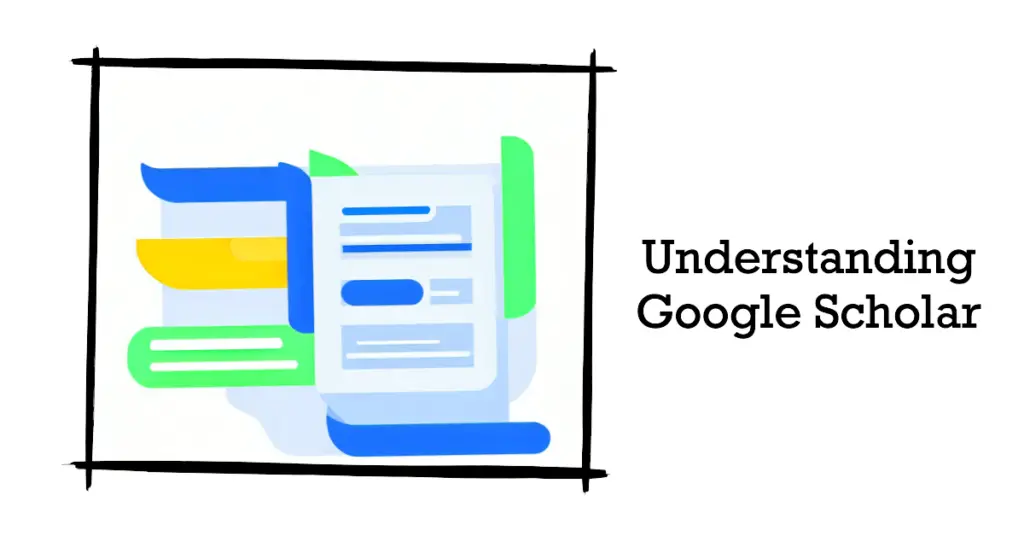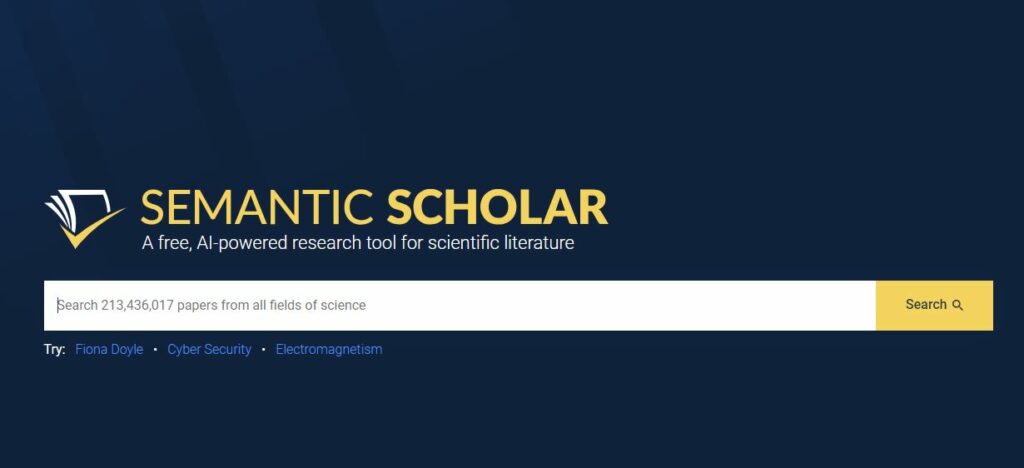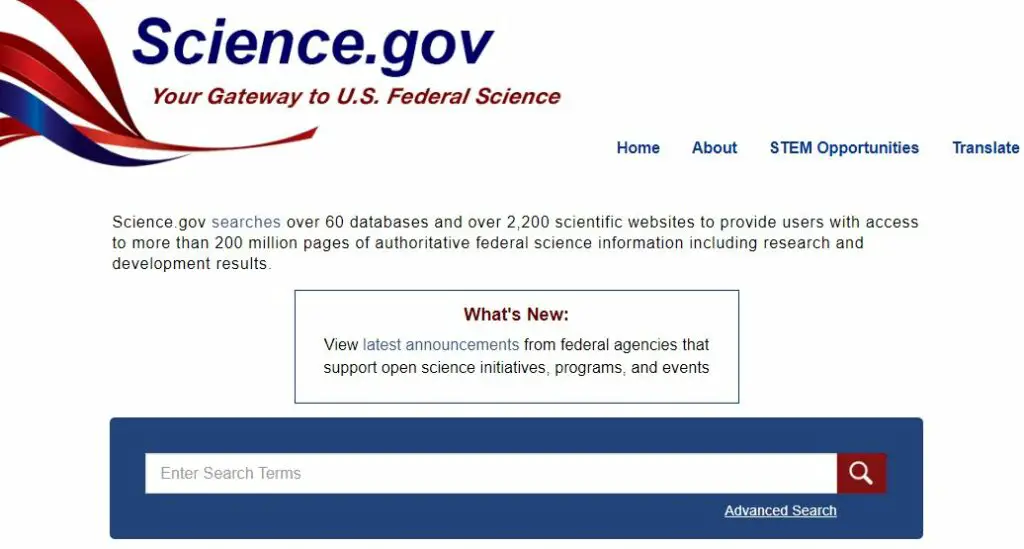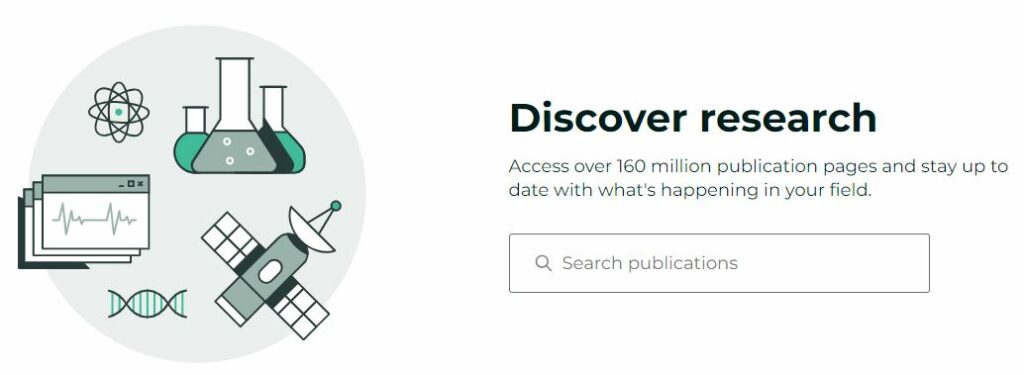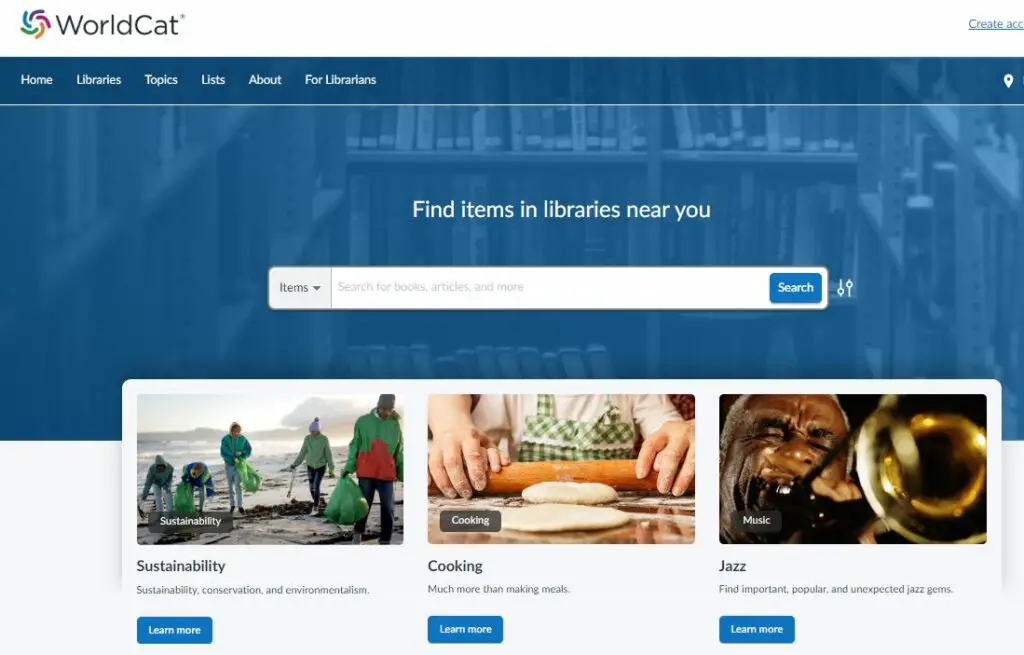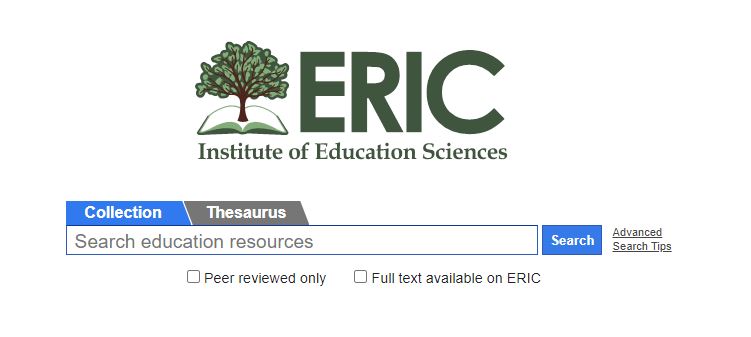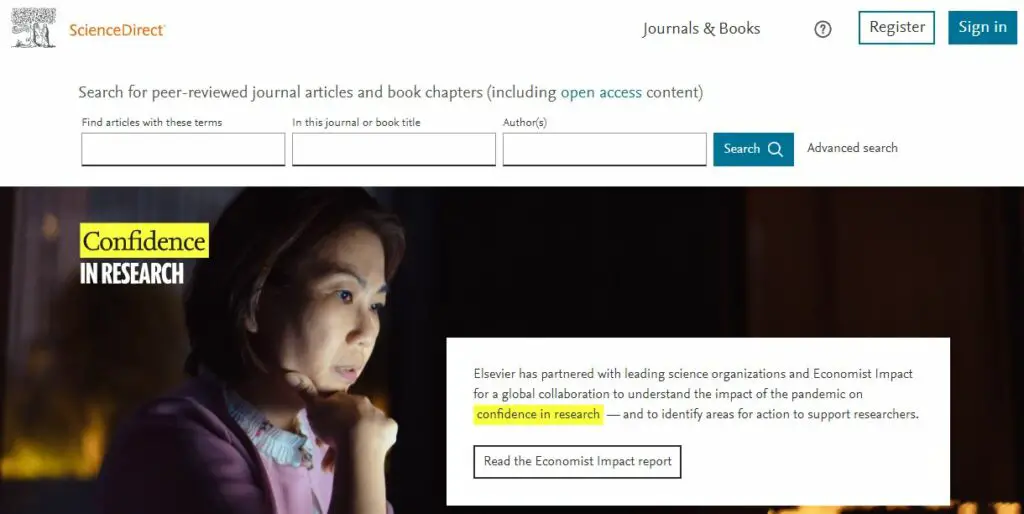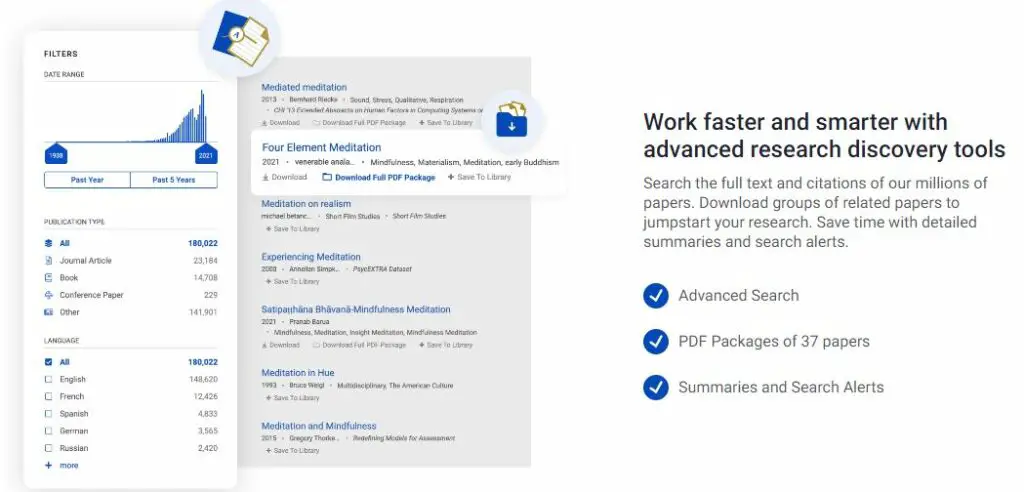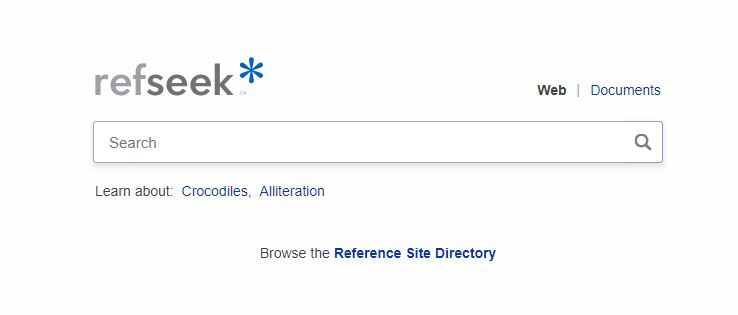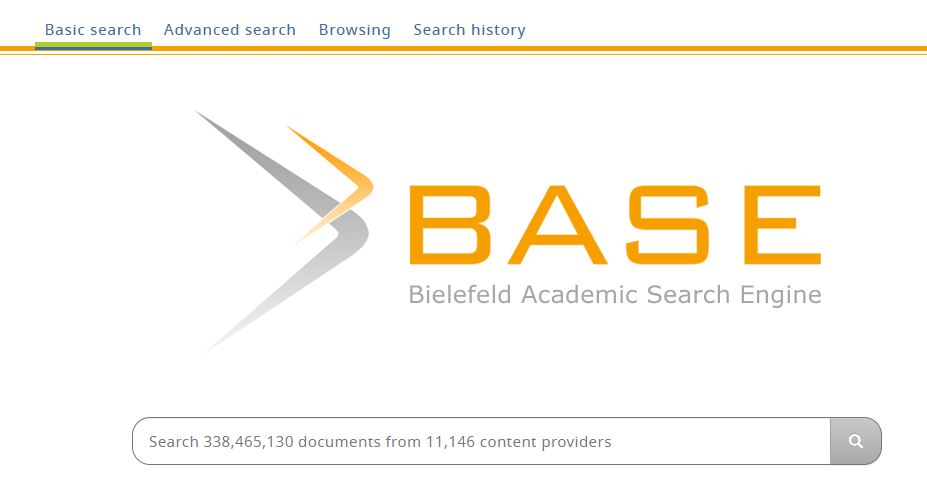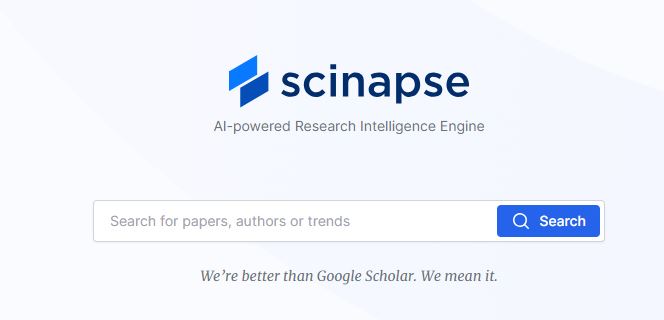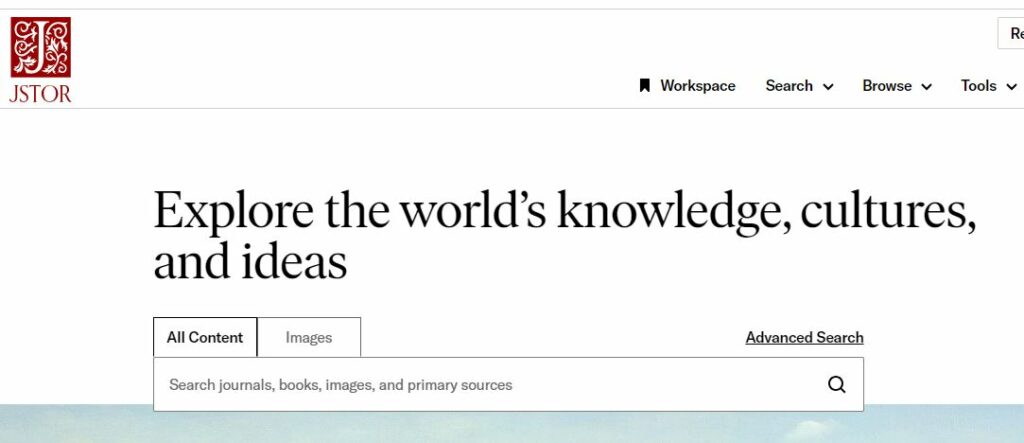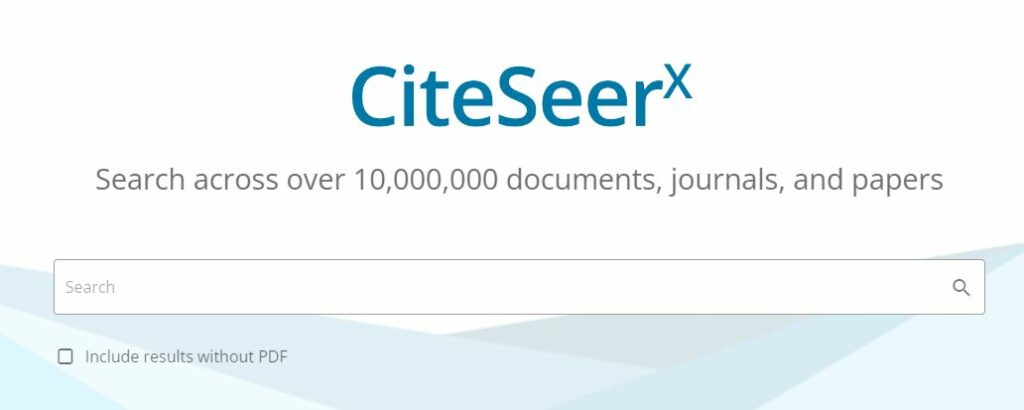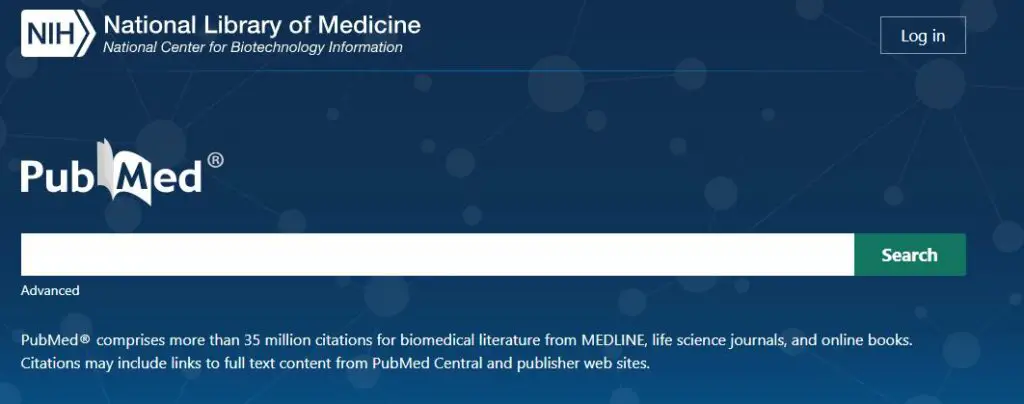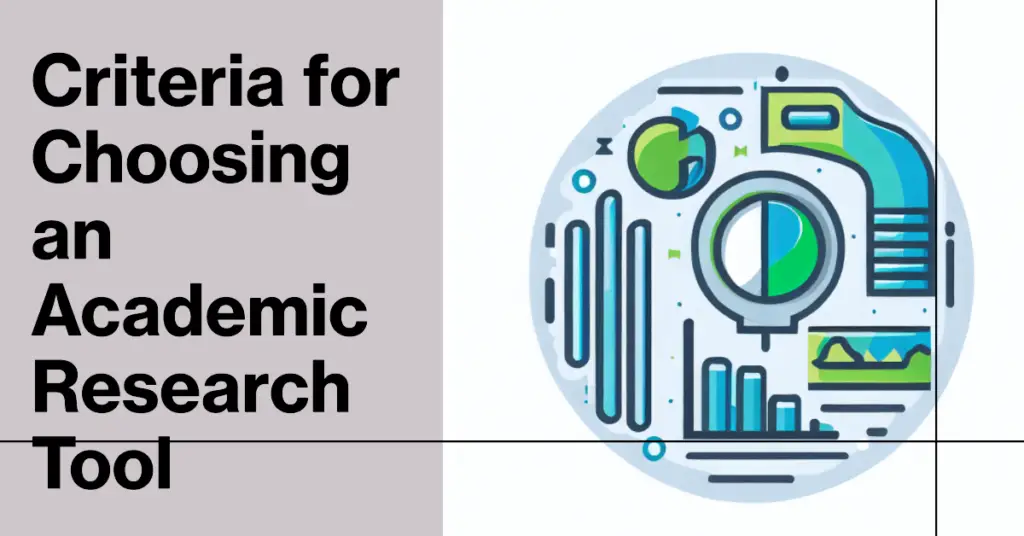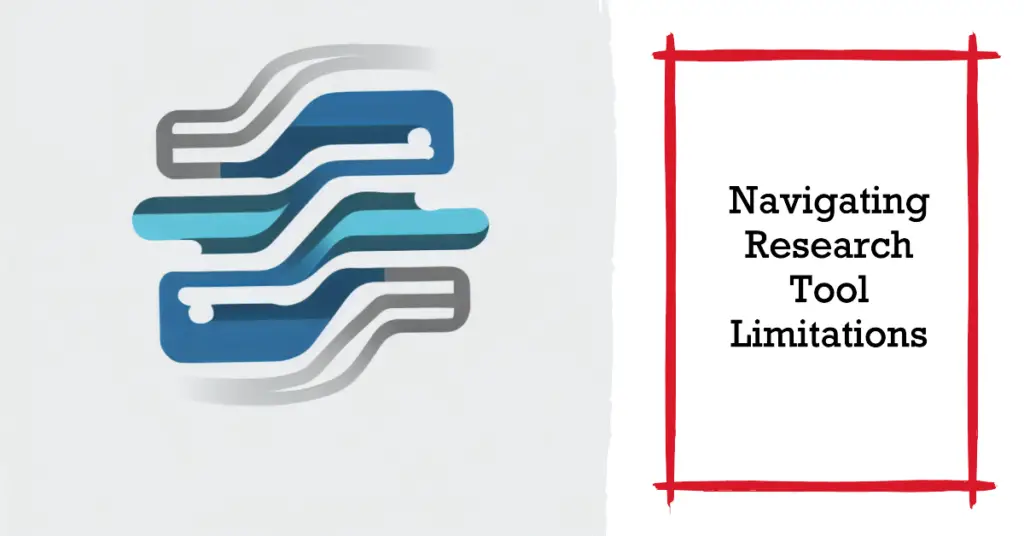In the vast ocean of academic research, finding accurate, reliable, and comprehensive resources for your study needs can be challenging. Google Scholar has been the go-to tool for many researchers due to its wide coverage and easy access.
However, it isn’t without its shortcomings. Limited search filters, occasional problems linking to full-text articles, and lack of certain discipline-specific content can often leave researchers wishing they had more effective research tools.
These issues can lead to time-consuming research processes, potential inaccuracies, and a limited perspective on the subject matter. Relying solely on Google Scholar may limit your research’s depth and breadth.
And in a world where comprehensive and diverse sources are key to a thorough understanding of any topic, these constraints can seriously hinder your academic or professional progress.
Exploring Google Scholar alternatives can enhance your research and offer solutions to the problems presented by Google Scholar. By diversifying your tools, you can tap into more specialized databases, enjoy advanced search features, and broaden your research landscape.
This article delves into the top Google Scholar alternatives that can effectively supplement or even replace Google Scholar in your research routine.
Understanding Google Scholar
Google Scholar is a comprehensive academic search engine designed to facilitate the exploration of scholarly literature. It provides researchers, students, and academics a user-friendly platform to access a vast repository of scholarly articles, theses, conference papers, patents, and more.
By employing advanced algorithms and machine learning techniques, Google Scholar offers an extensive collection of resources and ensures the relevancy and accuracy of search results.
One of the primary advantages of Google Scholar is its inclusivity of various disciplines and multi-lingual support, making it a valuable tool for researchers across the globe. The citation tracking feature enables researchers to trace the impact of their work and gauge its scholarly influence.
Moreover, Google Scholar’s personal library feature allows users to store and organize their selected papers, making it a convenient reference manager.
To optimize search results, researchers can employ Boolean operators, such as AND, OR, and NOT, to fine-tune their queries. Additionally, by utilizing advanced search options, researchers can narrow down results based on authors, publication dates, and specific journals.
While Google Scholar is a valuable resource, evaluating critically when using the platform is essential. Not all sources indexed are peer-reviewed, so researchers must independently assess the reliability and credibility of the information retrieved.
In conclusion, Understanding Google Scholar and its myriad features can greatly benefit scholars and researchers in their quest for knowledge, promoting further academic exploration and advancement.
Top Google Scholar Alternatives To Diversify Your Sources
1. Semantic Scholar
Semantic Scholar emerges as a powerful alternative to Google Scholar in scholarly research. With its cutting-edge approach, Semantic Scholar presents a sophisticated academic search experience that caters to the discerning needs of researchers and academics worldwide.
One of the key advantages of Semantic Scholar lies in its emphasis on semantic analysis. By leveraging natural language processing and machine learning, the platform comprehends the context and meaning behind research papers, ensuring highly relevant search results. This stands in contrast to traditional keyword-based systems, making it a preferred choice for those seeking deeper insights.
Furthermore, Semantic Scholar adopts a rigorous approach to inclusion, favoring peer-reviewed articles and scholarly sources. This quality-focused curation engenders trust among users, who can rest assured that the information they access is reliable and authoritative.
The platform’s user interface is designed for intuitive navigation, allowing researchers to quickly locate the most pertinent papers in their fields of interest. Additionally, advanced filtering options enable users to narrow searches based on publication date, author, and venue criteria.
Beyond its search capabilities, Semantic Scholar introduces an innovative citation graph that visually maps connections between academic papers. This novel feature aids in identifying influential works and tracing the evolution of ideas within a field.
In conclusion, Semantic Scholar is a premier alternative to Google Scholar, offering a sophisticated, user-friendly, and academically sound research platform.
Whether embarking on a scholarly journey or seeking to stay at the forefront of academic progress, researchers can confidently turn to Semantic Scholar for a seamless and enlightening experience.
Pros:-
Semantic Analysis: The platform’s utilization of advanced technologies like natural language processing and machine learning allows for a deeper understanding of research papers, leading to more relevant search results.
Quality-Focused Curation: Semantic Scholar prioritizes peer-reviewed articles and scholarly sources, ensuring the information accessed is reliable and of high academic standards.
Intuitive User Interface: The platform offers an easy-to-navigate interface, making it effortless for researchers to locate relevant papers within their fields of interest.
Advanced Filtering Options: Researchers can fine-tune their searches using various filters, such as publication date, author, and venue, to pinpoint the most pertinent research.
Citation Graph: The innovative citation graph provides a visual representation of connections between academic papers, aiding in identifying influential works and tracking the progression of ideas in a field.
Cons:-
Limited Scope: While Semantic Scholar covers a wide range of disciplines, it may not be as extensive as Google Scholar, which includes a more diverse source.
Less Multilingual Support: Google Scholar supports multiple languages, whereas Semantic Scholar may not offer the same breadth of language options for researchers working in non-English fields.
Smaller Repository: As a newer platform, Semantic Scholar’s database might not be as extensive as Google Scholar’s vast academic resources.
Lesser Known: Compared to Google Scholar, Semantic Scholar might not be as widely recognized and used, which could limit its overall impact and accessibility for some researchers.
Frequent Updates Required: As research and academic fields constantly evolve, Semantic Scholar needs to maintain regular updates to keep up with the latest developments, which could be resource-intensive.
Overall, Semantic Scholar offers an excellent alternative to Google Scholar, particularly for researchers seeking a more contextually relevant and curated search experience.
However, users might find both platforms complementary in their scholarly pursuits depending on specific research needs and preferences.
Best Use Cases for Semantic Scholar:-
Focused Research in Specific Fields: Semantic Scholar provides highly relevant and contextually rich results in specific research domains. Researchers seeking in-depth insights within niche areas can utilize the platform to uncover valuable papers and resources.
Identifying Influential Papers and Authors: The platform’s citation graph feature is valuable for researchers interested in understanding the impact of academic works and tracing the influence of authors within their fields. This can aid in discovering key contributors and seminal papers.
Staying Current with Emerging Trends: For academics and researchers looking to stay at the forefront of their fields, Semantic Scholar’s regular updates and advanced filtering options allow for identifying recent publications and emerging trends.
Literature Review and Paper Discovery: During the literature review process, researchers can leverage Semantic Scholar to identify related works, explore interconnected concepts, and access a curated selection of scholarly articles.
Data-Driven Decision Making: Scientists, policymakers, and professionals can employ Semantic Scholar’s insights to support evidence-based decision-making, as the platform offers access to peer-reviewed research and credible data sources.
Academic Collaboration and Networking: By exploring the citation network, researchers can connect with like-minded scholars, identify potential collaborators, and build academic relationships within their fields.
Curated Learning Resources: Educators and students can benefit from Semantic Scholar’s quality-focused curation to access reliable learning materials, helping enhance the learning experience and academic rigor.
Supporting Research Proposals and Funding Applications: When preparing research proposals or seeking funding opportunities, Semantic Scholar can serve as a valuable resource to reinforce the significance and context of the proposed research.
Monitoring Academic Impact: Academic institutions and researchers can utilize Semantic Scholar to track the influence of their published works and monitor citations, enabling them to gauge their scholarly impact.
Interdisciplinary Exploration: Researchers interested in interdisciplinary studies can use Semantic Scholar to bridge gaps between fields, discovering connections and cross-referencing academic work from diverse disciplines.
Overall, Semantic Scholar offers many applications that cater to the needs of researchers, educators, policymakers, and professionals, enhancing the efficiency and effectiveness of their academic endeavors. Its advanced features and curated content make it an indispensable tool in the modern world of scholarly research.
2. Science.gov
In academic research, Science.gov emerges as a formidable contender among the best Google Scholar alternatives. This comprehensive and cutting-edge platform offers a sophisticated avenue for scholars and researchers to access a vast repository of scientific literature and government research.
One of the key strengths of Science.gov lies in its interdisciplinary focus, accommodating diverse scientific disciplines and government-funded research domains.
By leveraging advanced data mining techniques and information retrieval algorithms, the platform curates a well-rounded collection of scholarly articles, conference papers, and technical reports, fostering a holistic approach to knowledge exploration.
Unlike traditional search engines, Science.gov stands out with its emphasis on authoritative sources. As a government-funded initiative, the platform prioritizes peer-reviewed publications, official reports, and scientific data from reputable sources. This quality-oriented curation ensures that researchers can access trustworthy and accurate information.
The user-friendly interface of Science.gov facilitates effortless navigation, allowing researchers to browse through research papers and findings efficiently. The platform’s advanced search capabilities enable users to fine-tune queries based on specific parameters, such as publication dates, authors, and government agencies.
Moreover, Science.gov promotes collaboration and networking within the scientific community. Researchers can identify potential collaborators and explore partnerships through the platform, fostering a culture of knowledge exchange and interdisciplinary synergy.
In conclusion, Science.gov is a premier alternative to Google Scholar, offering researchers a comprehensive, credible, and intuitive platform to delve into scientific knowledge.
Whether exploring cutting-edge research or seeking government-backed data, Science.gov empowers scholars to make informed decisions and advance the frontiers of science.
Pros of Science.gov:-
Interdisciplinary Coverage: Science.gov caters to a wide range of scientific disciplines and government research domains, making it a valuable resource for researchers exploring diverse fields.
Quality-Focused Curation: The platform prioritizes authoritative sources, including peer-reviewed publications and official government reports, ensuring access to reliable and credible information.
Advanced Data Mining Techniques: Science.gov leverages advanced data mining and information retrieval algorithms, enabling researchers to efficiently discover relevant and insightful scientific literature.
User-Friendly Interface: The platform’s intuitive interface facilitates seamless navigation, allowing researchers to browse research papers and findings easily.
Advanced Search Capabilities: Science.gov offers advanced search options, empowering users to fine-tune their queries based on specific parameters like publication dates, authors, and government agencies.
Official Government Research: Researchers can access a wealth of government-funded research and data, providing valuable insights for evidence-based decision-making and policy formulation.
Networking Opportunities: Science.gov fosters collaboration within the scientific community, enabling researchers to identify potential collaborators and establish partnerships for interdisciplinary research.
Holistic Knowledge Exploration: The platform’s interdisciplinary approach encourages a comprehensive exploration of scientific knowledge, bridging gaps between different research domains.
Cons of Science.gov:-
Limited Non-Government Sources: While Science.gov excels in government-funded research, it may not encompass a comprehensive collection of non-governmental scholarly publications, potentially limiting its scope.
Language Limitations: The platform’s primary language may be limited to English, which could pose challenges for researchers seeking scientific literature in other languages.
Focus on U.S. Government Research: Science.gov predominantly features research funded by U.S. government agencies, possibly overlooking valuable international research and perspectives.
Subject to Government Funding: The availability and scope of resources on Science.gov may be subject to changes in government funding, potentially impacting the diversity of research materials available.
Less Emphasis on Citations: Unlike Google Scholar, Science.gov may not provide in-depth citation tracking features, limiting researchers’ ability to gauge the impact of specific works.
Resource Updates: The regularity of updates and additions to the platform’s database could vary, affecting the currency of the available research materials.
Despite these limitations, Science.gov remains invaluable for researchers seeking a curated and reliable collection of government-backed scientific literature. Researchers can leverage the platform’s strengths to enhance their knowledge exploration and contribute to advancing scientific understanding.
Best Use Cases for Science.gov:-
Academic Research and Literature Review: Researchers can use Science.gov to conduct comprehensive literature reviews and access peer-reviewed scientific publications and technical reports.
Government Policy Development: Policymakers and government officials can rely on the platform to access reliable and authoritative government-funded research, enabling evidence-based decision-making and policy formulation.
Interdisciplinary Research: Science.gov’s interdisciplinary coverage makes it an ideal resource for researchers working across multiple scientific domains, facilitating cross-disciplinary insights and collaborations.
Academic Writing and Paper Citation: Scholars and authors can use the platform to discover relevant academic papers and properly cite government-funded research in their works.
Data Analysis and Visualization: Researchers can access scientific data and datasets from government sources through Science.gov, aiding in data analysis and visualization for research projects.
STEM Education and Teaching: Educators can utilize Science.gov as a supplementary resource to enrich STEM (Science, Technology, Engineering, and Mathematics) education, incorporating real-world research and data into their teaching materials.
Government Contracting and Research Opportunities: Businesses and organizations seeking government contracts or research partnerships can explore Science.gov to identify relevant opportunities and understand the landscape of government-funded research.
Healthcare and Medical Research: Healthcare professionals and researchers can access government-backed research on public health, disease prevention, and medical advancements to inform their practices and studies.
Environmental Studies and Sustainability: Environmental researchers and policymakers can benefit from Science.gov’s collection of government research on environmental issues, climate change, and sustainability.
Scientific Collaboration and Networking: Scientists and researchers can use Science.gov to discover potential collaborators and connect with experts in their fields, fostering scientific networking and collaborative projects.
Science.gov is a valuable resource with diverse use cases for researchers, educators, policymakers, and professionals in various scientific and government-related domains.
Its authoritative content, user-friendly interface, and interdisciplinary focus make it an indispensable tool for advancing scientific knowledge and informed decision-making.
3. ResearchGate
In the vast landscape of academic research, ResearchGate emerges as a prominent alternative to Google Scholar, offering a dynamic platform that caters to the discerning needs of researchers and scholars worldwide.
At the heart of ResearchGate lies a vibrant community of researchers, providing a unique academic social networking experience. Through its interactive features, scholars can connect, collaborate, and share knowledge with like-minded peers, fostering a culture of intellectual exchange and cross-disciplinary synergy.
Unlike traditional search engines, ResearchGate offers researchers a personalized research feed, delivering tailored content based on their areas of interest and academic connections. This empowers researchers to stay up-to-date with their respective fields’ latest findings and advancements.
One of the distinguishing features of ResearchGate is its comprehensive repository of research publications, conference papers, and preprints, making it a valuable source for accessing academic literature across diverse disciplines.
Additionally, ResearchGate’s citation metrics provide researchers with insights into the impact of their work, enabling them to gauge their scholarly influence and track the dissemination of their research.
ResearchGate also serves as a platform for online collaboration, allowing researchers to engage in discussions, pose questions, and seek expert advice from the global scientific community.
ResearchGate facilitates job postings, conference announcements, and funding opportunities for those seeking opportunities, empowering researchers to explore potential career advancements and research funding avenues.
In conclusion, ResearchGate stands out as a dynamic and interactive alternative to Google Scholar. With its emphasis on community engagement, personalized research feeds, and comprehensive academic resources, researchers can embrace ResearchGate as an indispensable tool in pursuing knowledge and academic excellence.
Pros of ResearchGate:-
Collaborative Community: ResearchGate fosters a vibrant community of researchers, enabling networking, collaboration, and knowledge sharing among scholars worldwide.
Personalized Research Feed: The platform provides a personalized research feed, delivering tailored content based on individual research interests and connections, keeping researchers up-to-date with relevant literature.
Comprehensive Repository: ResearchGate offers a vast repository of research publications, conference papers, and preprints from diverse academic disciplines, making it a valuable resource for accessing scholarly literature.
Citation Metrics: Researchers can access citation metrics on ResearchGate, providing insights into the impact and reach of their work within the academic community.
Online Collaboration: The platform facilitates discussions, questions, and peer expert advice, fostering online collaboration and knowledge exchange among researchers.
Job and Funding Opportunities: Researchers can explore job postings, conference announcements, and funding opportunities through ResearchGate, assisting in career advancement and research funding endeavors.
Real-time Research Updates: ResearchGate enables researchers to receive real-time updates on the latest publications and developments within their fields of interest.
Enhanced Visibility: Researchers can increase their visibility within the academic community by sharing their work, engaging in discussions, and connecting with other scholars on the platform.
Cons of ResearchGate:-
Limited Non-Academic Content: ResearchGate primarily focuses on academic research, which may limit access to non-academic resources and information.
Quality and Validity Concerns: As with any platform with user-generated content, there may be concerns about the quality and validity of some contributions, requiring users to evaluate the information critically.
Exclusive Membership: Some features on ResearchGate may be restricted to registered users, limiting access for those who choose not to join the platform.
Data Privacy Concerns: Users should be mindful of data privacy and information sharing when engaging with the platform, as with any online community.
Discipline-Specific Variability: The comprehensiveness of research papers and resources available may vary across different academic disciplines.
Platform Dependency: Researchers relying solely on ResearchGate may miss out on valuable resources from other platforms and databases.
In conclusion, ResearchGate offers many benefits, including a collaborative environment, personalized research updates, and a diverse repository of academic literature. However, users should be aware of potential limitations and exercise critical judgment when using the platform to ensure the credibility and quality of the information they encounter.
Best Use Cases for ResearchGate:-
Networking and Collaboration: Researchers can use ResearchGate to connect with peers, build academic relationships, and collaborate on research projects across different disciplines and institutions.
Staying Updated on Research: The personalized research feed allows researchers to receive real-time updates on the latest publications and developments within their areas of interest.
Sharing and Discovering Research: Scholars can share their research findings, conference papers, and preprints on ResearchGate, increasing the visibility of their work within the academic community. At the same time, they can discover relevant research from other scholars.
Citation Metrics and Impact Assessment: Researchers can access citation metrics on ResearchGate to gauge their work’s impact and track how others cite and share their research.
Seeking Expert Advice and Feedback: The platform facilitates discussions and Q&A sessions, allowing researchers to seek expert advice, gather feedback, and engage in scholarly discussions.
Recruitment and Job Opportunities: Institutions and organizations can post job openings and recruitment opportunities on ResearchGate, attracting potential candidates from a pool of highly qualified researchers.
Research Funding Opportunities: Researchers can explore funding opportunities, grants, and sponsorships posted on the platform, providing valuable support for their ongoing or future research projects.
Conference Participation and Announcements: ResearchGate is a hub for conference announcements and participation, helping researchers stay informed about relevant academic events.
Academic Profile and Visibility Building: Maintaining an active and comprehensive academic profile on ResearchGate can enhance a researcher’s visibility and reputation within the academic community.
Collaborative Projects and Research Groups: Researchers can form or join research groups on ResearchGate, fostering collaborations on specific topics or projects and encouraging interdisciplinary research.
In conclusion, ResearchGate offers a range of practical use cases for researchers seeking to advance their academic careers, stay informed about the latest research, connect with peers, and collaborate on innovative projects.
Its interactive and user-friendly features make it a valuable platform for scholars to enhance their academic impact and contribute to the global research community.
4. WorldCat
In academic research, WorldCat stands as a prime alternative to Google Scholar, offering a wealth of resources and benefits tailored specifically to the needs of students.
As an expansive global catalog of library collections, WorldCat provides a comprehensive and diverse array of academic materials that students can explore.
WorldCat’s strength lies in its vast network of library partnerships worldwide. With over 17,000 libraries participating, students gain access to an extensive collection of books, journals, articles, and multimedia resources. This feature is particularly advantageous for students seeking physical copies of materials not readily available online.
One of the key advantages of WorldCat is its ability to facilitate interlibrary loans, enabling students to obtain materials from other libraries even if their institution lacks the desired resource. This feature expands the scope of research opportunities, enriching students’ academic journeys.
WorldCat’s advanced search capabilities allow students to conduct precise and targeted research. The platform offers refined filters to narrow searches based on publication date, author, format, and subject, streamlining the research process and optimizing results.
Moreover, WorldCat offers a user-friendly interface, making it easy for students to navigate and explore the vast academic resources. The platform’s intuitive design ensures students can swiftly locate relevant materials to enhance their studies and assignments.
WorldCat’s multilingual support is a valuable asset for international students or those pursuing cross-cultural research. With access to materials in various languages, students can broaden their perspectives and delve into research from diverse cultural backgrounds.
In conclusion, WorldCat emerges as an exceptional Google Scholar alternative for students. Its wide-ranging library partnerships, interlibrary loan services, advanced search capabilities, and user-friendly interface empower students to embark on comprehensive academic pursuits, expanding their access to knowledge and fostering a deeper understanding of their chosen fields of study.
Pros of WorldCat:-
Extensive Library Network: WorldCat’s vast network of over 17,000 libraries worldwide provides students access to various academic resources, including books, journals, and multimedia materials.
Physical and Online Resources: Unlike some digital-only platforms, WorldCat offers access to both physical and digital resources, making it an ideal choice for students who prefer physical copies or require materials not available online.
Interlibrary Loan Services: WorldCat’s interlibrary loan feature allows students to request resources from other libraries, expanding their research opportunities and enriching their academic experiences.
Advanced Search Capabilities: The platform’s advanced search options and refined filters enable students to conduct precise and targeted research, saving time and improving the relevance of search results.
User-Friendly Interface: WorldCat’s intuitive design and user-friendly interface make it easy for students to navigate and explore the vast academic materials without feeling overwhelmed.
Multilingual Support: WorldCat’s multilingual support broadens research horizons for international students and those interested in cross-cultural studies, as it provides access to resources in various languages.
Comprehensive Academic Coverage: WorldCat’s extensive catalog covers various academic disciplines, ensuring students can find relevant resources for various subjects and research areas.
Cons of WorldCat:-
Limited Full-Text Access: While WorldCat provides information about resources available in different libraries, it may not always offer direct access to full-text materials, requiring students to check individual libraries for access options.
Institutional Subscription Requirements: Some resources listed on WorldCat may require institutional subscriptions or access credentials, limiting availability for students not affiliated with specific institutions.
Resource Availability: The availability of certain resources may vary based on the libraries’ collections and loan policies, potentially restricting access to highly sought-after materials.
Digital Resource Selection: WorldCat’s digital resource collection may not be as extensive as dedicated digital platforms, potentially limiting access to certain online-only publications.
Dependency on Library Holdings: The usefulness of WorldCat for students depends on the participating libraries and their holdings, which may differ among regions and institutions.
Subject to Library Policies: Access to physical resources through interlibrary loans is subject to the lending library’s policies, which may limit loan periods and usage.
Despite these limitations, WorldCat remains a valuable and powerful tool for students seeking comprehensive access to academic resources from diverse sources, facilitating their research and enhancing their educational journey.
Best Use Cases for WorldCat:-
Research and Literature Review: WorldCat is an excellent resource for research and literature review students. It provides access to a vast collection of academic materials, including books, journals, articles, and multimedia resources, enhancing the depth and breadth of their research.
Interlibrary Loans: Students can use WorldCat’s interlibrary loan services to obtain resources not available in their own library. This feature expands the range of materials students can access, enriching their academic projects and assignments.
Finding Physical Copies: For students who prefer physical copies of academic resources or require materials not readily available online, WorldCat’s extensive network of libraries offers an opportunity to find and access physical resources.
Advanced Searching: WorldCat’s advanced search capabilities and refined filters enable students to conduct precise and targeted research. Students can explore specific topics, authors, publication dates, and formats, optimizing their search results.
Multidisciplinary Research: WorldCat’s comprehensive catalog covers various academic disciplines, making it an ideal platform for students pursuing multidisciplinary research projects. It allows them to find resources from diverse subjects in one place.
Cross-Cultural Studies: WorldCat’s multilingual support benefits students interested in cross-cultural studies or conducting research in languages other than English. It opens doors to academic materials from different cultural backgrounds.
Support for International Students: International students can use WorldCat to access library resources worldwide, bridging the gap between their home institutions and global academic research.
Enhancing Academic Assignments: WorldCat’s extensive collection of academic resources enables students to strengthen their academic assignments, essays, and projects by incorporating various credible sources.
Exploring Rare and Special Collections: WorldCat’s collaboration with various libraries allows students to explore rare and special collections that may not be accessible elsewhere, enriching their academic endeavors.
Discovering New Perspectives: By accessing resources from different libraries and regions, students can discover new perspectives and insights on their research topics, fostering a deeper understanding of their subjects.
In conclusion, WorldCat is a valuable tool for students, providing them with many use cases, from accessing diverse academic resources to facilitating interlibrary loans and supporting cross-cultural and multidisciplinary research.
Its comprehensive approach to academic materials enriches students’ learning experiences and empowers them to excel in their educational pursuits.
5. ERIC (Education Resources Information Center)
In academic research, ERIC (Education Resources Information Center) is a prominent alternative to Google Scholar, offering a plethora of specialized educational resources.
At the heart of ERIC lies an extensive collection of peer-reviewed and scholarly literature that caters to educators, researchers, policymakers, and students in the education domain. The platform’s focus on education-related content enhances the relevance and specificity of search results.
One of the key strengths of ERIC is its comprehensive coverage of a wide range of education topics, including early childhood education, K-12 education, higher education, special education, and educational technology. This diversity of content empowers users to delve into various aspects of the education landscape.
The platform’s advanced search features enable users to perform targeted research, allowing them to refine searches based on criteria such as publication type, publication date, and education level. This enhances the efficiency and precision of research endeavors.
Additionally, ERIC offers a repository of grey literature—a valuable resource comprising reports, conference papers, and government documents not typically published through traditional academic channels. Access to grey literature is crucial for researchers seeking a comprehensive understanding of educational trends and policies.
Moreover, ERIC’s commitment to open access ensures that a substantial portion of its content is freely available to the public, promoting the dissemination of knowledge and fostering a collaborative learning community.
In conclusion, ERIC stands as a premier alternative to Google Scholar for those with a keen interest in the field of education. With its collection of peer-reviewed academic literature, specialization in education topics, and emphasis on open access, researchers and educators can confidently rely on ERIC to enrich their scholarly pursuits and contribute to advancing education research.
Pros of ERIC:-
Specialized Education Focus: ERIC’s primary focus on education-related content ensures a wealth of specialized resources catering specifically to researchers, educators, policymakers, and students in the field of education.
Peer-Reviewed Literature: The platform hosts a substantial collection of peer-reviewed and scholarly literature, providing users access to credible and authoritative academic sources.
Comprehensive Coverage: ERIC covers various education topics, including early childhood education, K-12 education, higher education, special education, and educational technology, enabling comprehensive research.
Advanced Search Features: ERIC’s advanced search capabilities allow users to conduct targeted and precise research, refining searches based on publication type, date, and education level, saving time and improving research efficiency.Grey Literature Repository: ERIC offers a valuable repository of grey literature, including reports, conference papers, and government documents, enriching research with less conventional yet essential sources.
Open Access Content: A significant portion of ERIC’s content is open access, providing free access to educational resources and promoting the dissemination of knowledge within the education community.
Educational Policy Insights: Researchers and policymakers can gain valuable insights into educational trends, policies, and practices through ERIC’s extensive collection of education-related documents.
Cons of ERIC:-
Narrow Focus: ERIC’s specialization in education limits its research coverage in other academic disciplines, potentially restricting its utility for researchers in non-education fields.
Limited Non-English Resources: While ERIC offers a wealth of English-language resources, access to academic literature in languages other than English may be limited.
Availability of Full-Text Content: Not all resources listed in ERIC may be available in full text, requiring users to check individual sources for complete access.
Dependence on Partnering Institutions: ERIC’s content depends on partnerships with participating institutions, and the availability of resources may vary based on these collaborations.
User Interface: Some users may find ERIC’s user interface less intuitive than other academic databases, potentially impacting user experience.
Lack of Real-time Updates: The regularity of updates and adding new content to ERIC may not be as frequent as other dynamic academic platforms.
Despite these limitations, ERIC remains a valuable and reputable resource for education-focused research, offering a wealth of peer-reviewed literature, specialized coverage, and open-access content that can greatly benefit researchers and educators in education.
Best Use Cases for ERIC:-
Education Research and Literature Review: ERIC is invaluable for conducting education-focused research and literature reviews. Researchers can access peer-reviewed articles, reports, and studies in various educational disciplines.
Curriculum Development and Lesson Planning: Educators can utilize ERIC to find educational resources, lesson plans, and teaching materials, aiding in curriculum development and enhancing classroom instruction.
Policy Analysis and Educational Reform: Policymakers and educational administrators can benefit from ERIC’s collection of policy documents and research studies, helping them make informed decisions on educational reform and improvement.
Early Childhood Education Studies: ERIC offers abundant resources related to early childhood education, making it an excellent tool for researchers and practitioners working with young learners.
Special Education Research: Researchers and educators focusing on special education can find a wealth of relevant studies, intervention strategies, and best practices in ERIC.
Educational Technology Integration: ERIC provides valuable insights into technology integration in education, helping educators stay updated on the latest trends and best practices.Academic Paper Citations and References: Students and researchers can use ERIC to find citations and references for their academic papers, ensuring accurate and credible sources are included in their work.
Comparative Education Studies: ERIC’s diverse collection of education-related documents worldwide makes it a useful resource for comparative education studies.
Educational Program Evaluation: Researchers and evaluators can access studies and reports on educational program evaluations to assess the effectiveness of different educational initiatives.
Professional Development and Continuing Education: Educators and professionals in the education field can find resources for their professional development and continuing education needs on ERIC.
In conclusion, ERIC offers a range of best use cases for researchers, educators, policymakers, and students in the field of education. Its specialized focus, a wealth of peer-reviewed literature, and diverse educational resources make it a valuable tool for advancing knowledge and practice in education.
6. ScienceDirect
ScienceDirect is one of the best Google Scholar alternatives, offering a comprehensive and specialized platform for accessing a wealth of scientific literature from renowned publishers and academic institutions.
With an extensive collection of peer-reviewed journals, books, and conference proceedings, ScienceDirect is an indispensable resource for researchers, scholars, and students seeking high-quality academic content.
One of ScienceDirect’s distinctive advantages lies in its extensive coverage of various academic disciplines, making it an ideal choice for those seeking Google Scholar alternatives in diverse fields.
The platform’s advanced search capabilities enable users to perform in-depth searches, refining results based on publication date, author, journal, or subject. This targeted approach streamlines the research process and enhances the relevance of search outcomes.
Furthermore, ScienceDirect’s full-text access to publications ensures that researchers can read and download complete articles and chapters, expediting their work and providing a seamless experience compared to other Google Scholar alternatives.
As a user-friendly platform, ScienceDirect offers a seamless navigation experience, allowing users to easily retrieve relevant content and delve into the latest scientific advancements.
Moreover, ScienceDirect boasts various interactive features that encourage scholarly engagement, including citation tracking, author profiles, and research data integration. These features foster academic collaboration and provide valuable insights into the impact and influence of published works.
In conclusion, ScienceDirect serves as a premier and robust alternative to Google Scholar, offering researchers and academics a specialized and dynamic platform to explore the frontiers of science.
Its extensive collection, advanced search capabilities, and user-friendly interface make ScienceDirect a top choice for those seeking Google Scholar alternatives to support their research endeavors.
Pros of ScienceDirect:-
Specialized Content: ScienceDirect offers a specialized collection of peer-reviewed journals, books, and conference proceedings, providing in-depth resources for researchers in various academic disciplines.
Extensive Coverage: With a vast array of scientific literature, ScienceDirect covers many subjects, making it a valuable resource for researchers looking for comprehensive content.
Advanced Search Capabilities: ScienceDirect’s advanced search features allow users to perform detailed searches, refining results based on specific criteria, leading to more relevant and targeted information.
Full-Text Access: The platform provides full-text access to publications, ensuring researchers can read and download complete articles and chapters, facilitating thorough analysis and research.
Interactive Features: ScienceDirect offers interactive features like citation tracking, author profiles, and research data integration, enhancing scholarly collaboration and providing insights into the impact of published works.
User-Friendly Interface: ScienceDirect’s user-friendly interface makes it easy for researchers to navigate and access relevant content, ensuring a smooth and efficient research experience.
High-Quality Sources: As a platform affiliated with reputable publishers and academic institutions, ScienceDirect provides access to high-quality and credible academic resources.
Cons of ScienceDirect:-
Limited Open Access: While ScienceDirect does offer open-access content, not all resources are freely available, which may limit accessibility for researchers without institutional subscriptions.
Cost Considerations: Subscribing to ScienceDirect may involve costs, especially for institutions or researchers looking to access a comprehensive range of content.
Subject Coverage: While ScienceDirect’s collection is vast, it may not cover certain niche or less-represented academic disciplines as extensively as broader databases like Google Scholar.
Dependency on Publisher Partnerships: The availability of specific publications on ScienceDirect may be influenced by partnerships with publishers, potentially affecting the diversity of content.
Lack of Non-Academic Content: ScienceDirect may not provide access to non-academic resources or content from other domains as a platform focused on scientific literature.
Resource Updates: The frequency of updates and the addition of new content may vary, potentially affecting the currency of the available research materials.
In conclusion, ScienceDirect is a robust Google Scholar alternative with specialized and comprehensive content, advanced search capabilities, and user-friendly features. While it offers valuable resources for researchers, considerations such as access limitations and cost implications should be considered when choosing the platform for academic research.
7. Academia
Academia.edu emerges as one of the best Google Scholar alternatives, offering a unique and dynamic platform for academic researchers and scholars to showcase their work and access a wealth of scholarly resources.
At its core, Academia.edu serves as a vibrant academic community where researchers can share their research, connect with peers, and engage in scholarly discussions.
One of the distinctive advantages of Academia.edu lies in its user-friendly interface, making it easy for researchers to create and maintain their academic profiles, share their papers, and access content from other scholars.
As an open-access platform, Academia.edu fosters knowledge dissemination by allowing researchers to publish and access various academic papers, conference papers, and preprints.
Moreover, the platform’s recommendation system facilitates the discovery of relevant research for users, ensuring a personalized and tailored experience.
Academia.edu provides a global reach, enabling researchers to connect with peers from diverse academic disciplines and geographical locations, promoting interdisciplinary collaboration.
Furthermore, the platform’s analytics features offer insights into the impact of researchers’ work, including citation counts, downloads, and profile views.
Academia.edu also serves as a valuable resource for staying updated with the latest research trends and developments through its extensive collection of academic papers.
In conclusion, Academia.edu is a premier platform and an ideal Google Scholar alternative for researchers seeking a dynamic and collaborative academic environment.
Its user-friendly interface, open-access philosophy, global reach, and analytics features make it an essential tool for researchers to share their work, discover new research, and engage in scholarly conversations, thus advancing knowledge in diverse academic fields.
Pros of Academia.edu:-
Academic Community: Academia.edu fosters a vibrant academic community where researchers can connect, collaborate, and engage in scholarly discussions, promoting academic interaction and collaboration.
Open Access Publishing: The platform allows researchers to publish their work openly, making it accessible to a global audience and facilitating knowledge dissemination.
User-Friendly Interface: Academia.edu offers a user-friendly interface, making it easy for researchers to create and manage their academic profiles, share their papers, and discover relevant research.
Personalized Recommendations: The recommendation system on Academia.edu provides personalized suggestions for research papers and content based on users’ interests and activities.
Global Reach: Researchers from diverse academic disciplines and geographical locations can connect and collaborate on Academia.edu, promoting interdisciplinary research and knowledge exchange.
Analytics Features: Academia.edu provides researchers with insights into the impact of their work, including citation counts, downloads, and profile views, facilitating the assessment of research reach and influence.
Staying Updated: The platform offers extensive academic papers, allowing researchers to stay updated with the latest trends and developments in their respective fields.
Cons of Academia.edu:-
Mixed Quality of Content: As an open-access platform, Academia.edu may include a mix of high-quality research papers and those without peer review.
Limited Full-Text Access: While many papers on Academia.edu are freely accessible, some may require institutional subscriptions or payment for full-text access.
Self-Promotion: Researchers may face challenges distinguishing between legitimate research and self-promotional content on the platform.
Data Privacy Concerns: Users should be cautious about sharing sensitive research data or personal information on the platform, considering data privacy concerns.
Limited Focus on Non-Academic Research: Academia.edu primarily focuses on academic research, and researchers seeking non-academic content may need to explore other platforms.
Availability of Popular Publishers: Some well-known publishers may not be represented on Academia.edu, potentially limiting access to certain research papers.
Competition for Visibility: With many researchers and papers on the platform, gaining visibility for specific research may be challenging.
In conclusion, Academia.edu offers a range of pros and cons as a Google Scholar alternative. Its academic community, open-access publishing, user-friendly interface, personalized recommendations, and global reach make it an attractive platform for researchers seeking scholarly collaboration and knowledge sharing.
However, researchers should be mindful of the content quality and data privacy concerns while utilizing the platform for their academic endeavors.
Best Use Cases for Academia.edu:-
Academic Networking and Collaboration: Academia.edu is a valuable platform for researchers to connect with peers from various academic disciplines, fostering academic networking and collaboration.
Sharing Research Work: Researchers can showcase their research papers and findings on Academia.edu, providing a global audience with open access to their work and facilitating knowledge dissemination.
Discovering Relevant Research: The platform’s personalized recommendation system helps researchers discover relevant academic papers and content, keeping them updated with the latest field developments.
Engaging in Scholarly Discussions: Academia.edu’s academic community allows researchers to engage in scholarly discussions, exchange ideas, and receive feedback on their work, promoting academic dialogue.
Assessing Research Impact: Researchers can utilize the analytics features on Academia.edu to assess the impact of their work, including citation counts and downloads, aiding in evaluating research reach and influence.
Interdisciplinary Research: Academia.edu’s global reach facilitates interdisciplinary collaboration, enabling researchers from diverse fields to connect and collaborate on cross-disciplinary projects.
Preprint Sharing: Academia.edu supports sharing preprints, allowing researchers to disseminate their preliminary findings before formal peer review and publication.
Academic Job Search: The platform provides a space for researchers to highlight their academic achievements, research interests, and publications, aiding in their job search in the academic community.
Connecting with Experts: Researchers can identify experts in their fields and connect with them on Academia.edu, leading to potential collaborations and mentorship opportunities.
Promoting Research Impact: Academia.edu allows researchers to showcase their research to a wider audience, increasing their work’s potential impact and visibility within the academic community and beyond.
In conclusion, Academia.edu offers diverse and valuable use cases for researchers seeking a collaborative and open-access platform to share their work, engage with peers, and stay informed about the latest research in their fields.
Its focus on academic networking, research sharing, interdisciplinary collaboration, and research impact assessment makes it an essential tool for academics and researchers looking to expand their scholarly reach and influence.
8. RefSeek – Academic Search Engine
In the vast landscape of academic search engines, RefSeek emerges as a premier Google Scholar alternative, offering a unique and efficient platform for researchers and students pursuing comprehensive and credible information.
RefSeek sets itself apart by employing a meta-search approach, scouring multiple sources, including academic databases, repositories, and digital libraries, to present users with diverse scholarly resources.
One of the distinctive advantages of RefSeek is its commitment to privacy and unbiased results. Unlike some search engines that may track users’ activities, RefSeek prides itself on delivering unfiltered and objective search results.
With its focus on quality over quantity, RefSeek ensures that the resources presented are highly relevant and from reputable sources. This approach saves researchers time by eliminating the need to sift through irrelevant or unreliable materials.
The platform’s advanced search features enable users to conduct precise and targeted research, refining results based on publication type, date, author, or domain. This fine-grained control enhances the accuracy of search outcomes.
Moreover, RefSeek’s minimalist and user-friendly interface facilitates smooth navigation, allowing researchers to focus on their quest for knowledge without distractions.
RefSeek further distinguishes itself by providing access to various academic disciplines, making it an invaluable resource for scholars exploring interdisciplinary research topics.
In conclusion, RefSeek establishes itself as a prominent alternative to Google Scholar, with its meta-search approach, commitment to privacy, focus on quality content, advanced search capabilities, and user-friendly interface.
Researchers seeking a reliable and efficient academic search engine can confidently turn to RefSeek for their scholarly endeavors.
Pros of RefSeek:-
Meta-Search Approach: RefSeek’s meta-search approach scours multiple academic sources, providing users with diverse credible, and relevant scholarly resources.
Privacy and Unbiased Results: RefSeek emphasizes privacy and delivers unfiltered and unbiased search results, ensuring users a trustworthy and objective search experience.
Quality over Quantity: RefSeek prioritizes quality over quantity, presenting users with highly relevant resources from reputable sources, and saving time and effort in research.
Advanced Search Features: The platform’s advanced search capabilities allow for precise and targeted research, enabling users to refine results based on various criteria for more accurate outcomes.
User-Friendly Interface: RefSeek’s minimalist and user-friendly interface offers a seamless navigation experience, allowing researchers to focus on their search without distractions.
Interdisciplinary Research: RefSeek provides access to various academic disciplines, making it a valuable resource for scholars exploring interdisciplinary research topics.
Cons of RefSeek:-
Limited Scope: RefSeek may not have the same breadth of coverage as larger academic databases like Google Scholar, potentially missing certain niche or specialized resources.
Resource Updates: The frequency of updates and the addition of new content on RefSeek may not be as regular or comprehensive as some other academic search engines.
Access to Full-Text: While RefSeek provides links to academic resources, it may not always offer direct access to full-text articles or papers, requiring users to check individual sources for complete content.
Availability of Open Access: While RefSeek includes open-access materials, not all resources on the platform may be freely accessible, impacting researchers without institutional subscriptions.
Limited Interactive Features: RefSeek may lack some interactive features in larger academic platforms, such as citation tracking and author profiles.
Subjective Relevance Ranking: RefSeek’s relevance ranking may be subjective and influenced by the search engine’s algorithms, potentially affecting the order in which search results are presented.
In conclusion, RefSeek offers a range of pros and cons as a Google Scholar alternative. Its meta-search approach, privacy emphasis, quality-focused content, advanced search capabilities, and user-friendly interface make it an appealing choice for researchers seeking a credible and efficient academic search engine.
However, researchers should know its scope limitations and potential access restrictions when using RefSeek for their scholarly pursuits.
Best Use Cases for RefSeek:-
Comprehensive Academic Research: RefSeek’s meta-search approach makes it an ideal platform for conducting comprehensive academic research. Researchers can access various credible and relevant scholarly resources from academic databases and repositories.
Unbiased and Objective Results: RefSeek’s commitment to privacy and unbiased results ensures that researchers receive objective search outcomes, promoting a trustworthy and reliable research experience.
Time-Saving Resource Discovery: With RefSeek’s focus on quality over quantity, researchers can save time by accessing highly relevant resources from reputable sources, eliminating the need to sift through irrelevant materials.
Focused and Targeted Research: RefSeek’s advanced search features allow users to conduct focused and targeted research, refining search results based on specific criteria, leading to more accurate and precise outcomes.
Interdisciplinary Exploration: RefSeek’s access to a wide range of academic disciplines makes it a valuable resource for scholars engaged in interdisciplinary research, facilitating exploration across various fields of study.
Privacy-Conscious Research: Researchers concerned about privacy can confidently use RefSeek, as the platform prioritizes user privacy and delivers unfiltered search results without tracking activities.
Supporting Non-Institutional Researchers: RefSeek’s user-friendly interface and open-access resources can benefit independent researchers and scholars who may not have institutional subscriptions to larger academic databases.
Quick and Efficient Navigation: RefSeek’s minimalist and user-friendly interface enables quick and efficient navigation, allowing researchers to focus on their research without distractions.
Discovering Niche Content: While RefSeek may not have the same extensive scope as larger academic databases, it can still be a valuable tool for discovering niche or specialized academic content.
Academic Project Planning: Researchers can use RefSeek to gather relevant resources for academic projects, including literature reviews, theses, and research papers, enhancing the quality of their work.
In conclusion, RefSeek offers diverse and valuable use cases for researchers seeking a reliable and efficient academic search engine.
Its meta-search approach, emphasis on privacy and objective results, advanced search capabilities, and user-friendly interface make it a powerful tool for conducting comprehensive and targeted academic research while catering to the needs of both institutional and non-institutional researchers.
9. BASE (Bielefeld Academic Search Engine)
BASE, an exceptional Google Scholar alternative, is a powerful academic search engine that offers many advantages for researchers and students in their quest for scholarly information.
At its core, BASE serves as a massive repository of academic resources, indexing millions of openly accessible web documents from various sources, including institutional repositories, digital libraries, and subject repositories.
One of the distinctive advantages of BASE lies in its commitment to open access, providing users with access to a vast collection of freely available academic materials. This open-access philosophy promotes knowledge dissemination and supports the principles of open science.
With its comprehensive coverage of interdisciplinary topics, BASE ensures that users can explore a wide range of subjects and fields of study, catering to the diverse research interests of academics worldwide.
The platform’s advanced search features offer users fine-grained control over their research queries, allowing for precise and targeted searches based on specific criteria such as date, language, or document type.
Moreover, BASE emphasizes data protection and privacy, ensuring a secure and confidential research experience for users.
The platform’s integration with other academic services and repositories makes it a valuable one-stop destination for accessing scholarly content, saving researchers time and effort in their information retrieval process.
In conclusion, BASE is a prominent academic search engine, presenting a compelling case as the best Google Scholar alternative. Its vast repository of openly accessible academic resources, emphasis on open access and interdisciplinary coverage, advanced search capabilities, and commitment to data protection make it an essential tool for researchers and students seeking credible and freely available scholarly information.
Pros of BASE:-
Open Access Repository: BASE is a massive repository of openly accessible academic resources, providing users with a wealth of freely available scholarly materials.
Comprehensive Coverage: The platform indexes various interdisciplinary topics, ensuring users can explore diverse fields of study and access a broad spectrum of scholarly content.
Advanced Search Features: BASE offers advanced search capabilities, allowing users to conduct precise and targeted searches based on specific criteria, refining results for more relevant outcomes.
Integration with Academic Services: BASE’s integration with other academic services and repositories makes it a convenient one-stop destination for accessing scholarly content, saving researchers time and effort in their research endeavors.
Data Protection and Privacy: BASE prioritizes data protection and privacy, providing users with a secure and confidential research experience.
Support for Open Science: The platform’s open-access philosophy aligns with the principles of open science, promoting knowledge dissemination and accessibility within the academic community.
Cons of BASE:-
Limited to Open Access Resources: BASE primarily focuses on openly accessible web documents, which may result in the exclusion of some academic materials that are not openly available.
Less Coverage than Larger Databases: BASE’s coverage may not be as extensive as larger academic databases like Google Scholar, potentially missing certain niche or less widely indexed resources.
Varied Quality of Content: As BASE indexes web documents from diverse sources, the quality of the content may vary, and some materials may not undergo formal peer review.
Interface Complexity: Some users may find the user interface of BASE less intuitive or visually appealing compared to other academic search engines.
Limited Interactive Features: BASE may lack certain interactive features commonly found in larger academic platforms, such as citation tracking or personalized research recommendations.
Language Limitations: While BASE offers content in multiple languages, the availability of resources may vary across different languages.
In conclusion, BASE presents a range of pros and cons as a Google Scholar alternative. Its open-access repository, comprehensive coverage, advanced search capabilities, data protection emphasis, and support for open science make it an attractive choice for researchers seeking freely accessible scholarly content.
However, researchers should be aware of the coverage, content quality, and interface complexity limitations while utilizing BASE for their academic research and information retrieval needs.
Best Use Cases for BASE:-
Open Access Research: BASE is an excellent resource for researchers and students seeking open-access scholarly content. It provides a vast repository of freely available academic resources, making it ideal for those who prioritize open science and accessibility.
Interdisciplinary Exploration: Researchers engaged in interdisciplinary studies can benefit from BASE’s comprehensive coverage of diverse topics. It allows users to explore various fields and access relevant scholarly materials from various subject areas.
Targeted and Precise Searching: BASE’s advanced search features enable users to conduct precise and targeted searches based on specific criteria, ensuring more accurate and relevant research outcomes.
Convenient One-Stop Access: BASE’s integration with other academic services and repositories makes it a convenient one-stop destination for accessing scholarly content. Researchers can save time by finding relevant materials without searching multiple platforms.
Support for Open Science Initiatives: Researchers who support and advocate for open science principles can find BASE a valuable tool for discovering openly accessible research materials and promoting knowledge dissemination.
Academic Project Planning: BASE can aid researchers in gathering relevant resources for academic projects, including literature reviews, theses, and research papers, enhancing the quality of their work.
Data Protection and Privacy Concerns: BASE’s emphasis on data security provides a secure and confidential research experience for researchers concerned about data protection and privacy.
Exploring Multilingual Content: BASE offers content in multiple languages, making it useful for researchers seeking academic materials in languages other than English.
Complementary to Larger Databases: BASE can be used with larger academic databases like Google Scholar to broaden the scope of research and access additional open-access materials.
Promoting Knowledge Sharing: Researchers can contribute to knowledge sharing by making their work openly accessible on BASE, thereby supporting the open access movement and fostering academic collaboration.
In conclusion, BASE offers a range of best use cases for researchers and students seeking open-access scholarly content, conducting interdisciplinary research, conducting targeted searches, and supporting open science initiatives. Its integration with other academic services and emphasis on data protection further enhance its utility as a valuable tool for academic information retrieval and research endeavors.
10. Scinapse
In the ever-evolving landscape of academic search engines, Scinapse emerges as a cutting-edge alternative to Google Scholar, offering a revolutionary platform for researchers and academics to explore scholarly literature.
Scinapse sets itself apart with its advanced AI technology that powers its search capabilities. Leveraging the latest developments in artificial intelligence, Scinapse delivers highly precise and relevant results, making it a go-to resource for scholars seeking the most up-to-date and accurate information.
One of the distinctive advantages of Scinapse is its comprehensive coverage of academic papers, journal articles, conference proceedings, and preprints. The platform collates research from various academic sources, providing users access to scholarly content from different fields of study.
The user-friendly interface of Scinapse enhances the research experience, allowing researchers to navigate seamlessly through search results and easily explore academic materials.
Scinapse’s smart recommendation system serves as a powerful tool for discovery, presenting users with related articles and papers based on their research interests and activities. This feature aids researchers in unearthing hidden gems and expanding their knowledge on specific subjects.
Furthermore, Scinapse provides detailed citation analysis and impact metrics for published works, empowering researchers to gauge the influence and significance of their research and that of others in the academic community.
In conclusion, Scinapse stands at the forefront of academic search engines, offering an innovative alternative to Google Scholar.
With its advanced AI technology, comprehensive coverage of scholarly content, user-friendly interface, smart recommendations, and detailed citation analysis, Scinapse is a must-have tool for researchers seeking cutting-edge and accurate academic information.
Pros of Scinapse:-
Advanced AI Technology: Scinapse’s utilization of advanced artificial intelligence technology enhances the precision and relevance of search results, providing researchers with more accurate and up-to-date information.
Comprehensive Coverage: The platform’s comprehensive coverage includes academic papers, journal articles, conference proceedings, and preprints, ensuring access to scholarly content from various fields.
User-Friendly Interface: Scinapse’s user-friendly interface enables seamless navigation through search results and academic materials, enhancing the research experience.
Smart Recommendation System: Scinapse’s smart recommendation system offers related articles and papers based on users’ research interests, aiding in discovering valuable and relevant scholarly content.
Citation Analysis and Impact Metrics: Researchers can benefit from Scinapse’s detailed citation analysis and impact metrics, providing insights into the influence and significance of their research and that of others.
Innovative Technology: Scinapse’s cutting-edge technology is an innovative and advanced alternative to traditional academic search engines.
Cons:-
Limited Name Recognition: As a relatively new platform, Scinapse may not have the same level of name recognition and reputation as more established academic search engines like Google Scholar.
Content Selection: While Scinapse offers comprehensive coverage, certain niche or less widely indexed resources may not be as readily accessible as on other platforms.
Limited Interactive Features: Scinapse’s interactive features and functionalities may not be as extensive or diverse as those of larger academic search engines.
Availability of Full-Text: Some academic papers and articles indexed by Scinapse may not be directly accessible in full text, requiring users to access them from external sources.
Integration with Institutional Repositories: Scinapse’s integration with institutional repositories and databases may vary, potentially impacting the availability of research materials from certain institutions.
Data Privacy Considerations: Researchers should be mindful of data privacy and security while using Scinapse or any online academic search engine.
In conclusion, Scinapse offers a range of pros and cons as an alternative to Google Scholar. Its advanced AI technology, comprehensive coverage of scholarly content, user-friendly interface, smart recommendations, and citation analysis make it attractive for researchers seeking precise and up-to-date academic information.
However, researchers should be aware of the platform’s name recognition and potential limitations in content selection and interactive features when considering Scinapse for their academic research needs.
Best Use Cases for Scinapse:-
Precision Research: Scinapse’s advanced AI technology ensures highly precise and relevant search results, making it an ideal platform for researchers who seek accurate and up-to-date academic information.
Comprehensive Literature Review: Scinapse’s comprehensive coverage of academic papers, journal articles, conference proceedings, and preprints supports researchers in conducting thorough literature reviews on various subjects.
Discovery of Relevant Content: The platform’s smart recommendation system assists researchers in discovering related articles and papers based on their research interests, enabling them to explore new and relevant scholarly content.
Impact Assessment: Scinapse’s citation analysis and impact metrics allow researchers to assess the influence and significance of their work and other scholars, aiding in gauging research impact within the academic community.
Interdisciplinary Research: Scinapse’s wide range of scholarly content from different fields makes it a valuable resource for interdisciplinary research and exploration researchers.
Staying Updated: Researchers can rely on Scinapse to stay updated with the latest advancements and publications in their respective fields, ensuring they remain at the forefront of knowledge in their areas of interest.
Research Planning and Proposal Development: Scinapse aids researchers in planning their research projects and developing research proposals by providing access to relevant and foundational academic materials.
Academic Collaboration: Researchers can use Scinapse to identify potential collaborators and explore the work of other scholars in their fields, facilitating academic collaboration and networking.
Support for Open Science: Scinapse’s emphasis on open access and freely accessible scholarly content aligns with the principles of open science, promoting knowledge dissemination and accessibility.
Alternative to Traditional Search Engines: Scinapse offers an innovative alternative to traditional academic search engines, providing a modern and AI-powered platform for efficient and effective academic research.
In conclusion, Scinapse offers a range of best-use cases for researchers seeking precise and comprehensive academic information. Its advanced AI technology, comprehensive coverage, smart recommendations, impact assessment features, and support for interdisciplinary research make it an invaluable tool for researchers aiming to advance their knowledge, collaborate with peers, and stay updated with the latest research developments in their fields.
11. JSTOR
JSTOR emerges as a robust alternative to Google Scholar in academic research, offering a comprehensive and specialized platform for scholars and researchers.
JSTOR is a digital library of academic journals, books, and primary sources, housing an extensive collection of scholarly content from various disciplines. Its curated database ensures that the materials available are of high quality and relevance, making it a trusted resource for academics worldwide.
One of the distinctive advantages of JSTOR is its focus on deep research. It provides in-depth and detailed articles and publications, ideal for researchers delving into complex and specialized topics.
Moreover, JSTOR boasts a vast archive of historical documents, enabling researchers to access old and rare publications which may not be readily available on other platforms.
JSTOR is a treasure trove of reliable and credible academic materials for scholars seeking peer-reviewed content. The platform’s commitment to maintaining academic rigor ensures that researchers can trust the accuracy and authenticity of the resources they find.
The user-friendly interface of JSTOR enhances the research experience, allowing scholars to efficiently search for articles and navigate through relevant publications with ease.
JSTOR’s partnership with libraries and institutions worldwide further solidifies its position as a leading alternative to Google Scholar, providing seamless access to academic communities globally.
In conclusion, JSTOR is a robust and specialized alternative to Google Scholar, offering scholars a curated digital library of academic journals, books, and primary sources.
Its focus on deep research, historical archives, peer-reviewed content, user-friendly interface, and global accessibility make it an invaluable resource for researchers in their pursuit of knowledge and scholarly excellence.
Pros of JSTOR:-
Curated Database: JSTOR’s curated database ensures that the content available is of high quality, relevance, and academic rigor, providing researchers with trustworthy and credible resources.
Specialized Content: JSTOR provides in-depth and detailed articles and publications, making it an ideal platform for scholars delving into complex and specialized research topics.
Historical Archives: JSTOR offers a vast archive of historical documents, enabling researchers to access old and rare publications that may not be readily available on other platforms.
Peer-Reviewed Content: The platform hosts a wealth of peer-reviewed academic materials, ensuring researchers have access to reliable and authoritative scholarly publications.
User-Friendly Interface: JSTOR’s user-friendly interface enhances the research experience, enabling scholars to search for articles and navigate relevant publications easily and efficiently.
Global Accessibility: JSTOR’s partnerships with libraries and institutions worldwide provide seamless access to academic communities globally, ensuring the widespread availability of scholarly resources.
Cons of JSTOR:-
Limited Full-Text Access: While JSTOR offers a vast collection of scholarly content, not all publications may be available in full text, potentially requiring researchers to seek access through other means.
Subscription Required: Certain features and materials on JSTOR may require subscription or institutional access, limiting the availability of certain resources to researchers without appropriate affiliations.
Focus on Humanities and Social Sciences: JSTOR primarily focuses on humanities and social sciences, which may not fully cater to researchers in other scientific or technical fields.
Less Coverage of Recent Publications: JSTOR’s emphasis on historical content may result in limited coverage of recent and cutting-edge research publications.
Limited Multimedia Content: JSTOR may have limited multimedia content, such as videos or interactive materials, unlike other academic platforms.
Not Ideal for Current Awareness: Researchers seeking the latest updates and real-time research developments may find JSTOR less suitable for immediate and current awareness needs.
In conclusion, JSTOR offers a range of pros and cons as an alternative to Google Scholar. Its curated database, specialized and historical content, peer-reviewed materials, user-friendly interface, and global accessibility make it valuable for in-depth and scholarly research.
However, researchers should be mindful of potential limitations, such as access restrictions, field coverage, and recent publication focus, when considering JSTOR for their academic research needs.
Best Use Cases for JSTOR:-
In-Depth Research: JSTOR’s extensive collection of scholarly articles and publications makes it an excellent platform for researchers engaged in in-depth and comprehensive research on various topics.
Access to Historical Resources: JSTOR’s vast archive of historical documents provides scholars with a valuable resource for accessing old and rare publications, allowing for historical research and analysis.
Humanities and Social Sciences Studies: JSTOR’s primary focus on humanities and social sciences makes it an indispensable tool for researchers in these fields, providing specialized content tailored to their research needs.
Reliable and Peer-Reviewed Content: Researchers can rely on JSTOR to access peer-reviewed and authoritative academic materials, ensuring the credibility and reliability of the available resources.
Literature Reviews: JSTOR’s curated database is an asset for conducting literature reviews, enabling researchers to gather relevant and high-quality resources for their research projects.
Academic Writing and Publishing: JSTOR can aid scholars in finding supporting evidence, references, and citations for their academic writing and publications, enhancing the quality and credibility of their work.
Historical Analysis and Contextualization: Researchers studying historical events and developments can benefit from JSTOR’s historical archive, offering valuable insights and contextualization.
Global Collaboration: JSTOR’s global accessibility fosters academic collaboration and knowledge sharing among researchers and institutions worldwide.
Supporting Teaching and Learning: JSTOR is a valuable resource for educators and students in the humanities and social sciences, providing access to scholarly content that enhances teaching and learning experiences.
Integration with Institutional Libraries: JSTOR’s partnership with libraries and institutions facilitates seamless access to academic communities, allowing researchers to utilize their institutional subscriptions for expanded content access.
In conclusion, JSTOR offers a range of best-use cases for researchers and scholars in the humanities and social sciences. Its extensive collection of peer-reviewed content, historical resources, support for in-depth research, and global accessibility make it an indispensable tool for academic research, teaching, and learning endeavors.
12. CiteSeerX
CiteSeerX is an academic search engine and digital library that serves as a treasure trove of scholarly knowledge for researchers, students, and academics alike.
At the heart of CiteSeerX lies its comprehensive collection of scientific literature, including research papers, articles, theses, and conference proceedings from various disciplines. This vast repository of academic content caters to the diverse research interests of users worldwide.
One of the distinctive features of CiteSeerX is its focus on open-access resources. The platform provides users access to many freely available academic materials, supporting the principles of open science and fostering knowledge dissemination.
CiteSeerX boasts an intelligent citation indexing system, enabling researchers to trace the connections between papers and identify influential works within a specific field. This feature aids in understanding the impact and influence of research contributions.
The platform’s advanced search capabilities empower users to perform targeted and precise searches for academic content, refining results based on specific criteria such as authors, institutions, or keywords.
Moreover, CiteSeerX facilitates academic collaboration by allowing researchers to create and share public and private bibliographies. This collaborative aspect enhances the research process and promotes knowledge exchange within the academic community.
For researchers seeking to stay up-to-date with the latest advancements in their fields, CiteSeerX offers the Latest Citations feature, showcasing recently cited works, thus enabling users to be at the forefront of current research trends.
In conclusion, CiteSeerX is a valuable scholarly resource, providing a comprehensive and open-access digital library of academic literature. Its intelligent citation indexing system, advanced search capabilities, support for academic collaboration, and focus on open science make it an indispensable tool for researchers and scholars in their pursuit of knowledge and academic excellence.
Pros of CiteSeerX:-
Comprehensive Academic Repository: CiteSeerX hosts a vast collection of scientific literature, including research papers, articles, theses, and conference proceedings, catering to diverse research interests.
Open Access Resources: CiteSeerX emphasizes open access, providing users access to freely available academic materials and promoting knowledge dissemination and accessibility.
Intelligent Citation Indexing: The platform’s intelligent citation indexing system enables researchers to trace connections between papers, identify influential works, and understand research impact and influence.
Advanced Search Capabilities: CiteSeerX offers advanced search features, allowing users to perform targeted and precise searches based on specific criteria, enhancing the relevance and accuracy of search results.
Academic Collaboration: CiteSeerX facilitates academic collaboration by allowing researchers to create and share public and private bibliographies, promoting knowledge exchange and cooperation.
Stay Up-to-Date: The Latest Citations feature keeps researchers updated with the latest advancements in their fields, providing insights into current research trends and developments.
User-Friendly Interface: CiteSeerX’s user-friendly interface makes navigation and information retrieval efficient and seamless for researchers and students.
Cons of CiteSeerX:-
Limited Content Coverage: While CiteSeerX offers a comprehensive collection, it may not cover all academic sources, potentially missing some niche or less widely indexed resources.
Subject Focus: CiteSeerX’s focus on scientific literature may not fully cater to researchers in other academic fields, limiting its suitability for non-scientific disciplines.
Lack of Full-Text Access: Not all resources indexed by CiteSeerX may be available in full text, requiring users to access them from external sources or through institutional subscriptions.
Limited Multimedia Content: CiteSeerX may lack multimedia content, such as videos or interactive materials, which could be valuable for certain research disciplines.
Quality and Authenticity Concerns: As an open-access repository, CiteSeerX may contain content that has not undergone formal peer review, raising potential concerns about the quality and authenticity of some materials.
Less Recognizable than Traditional Databases: Compared to well-established academic databases, CiteSeerX may have less name recognition and reputation, which could influence researchers’ trust in the platform.
In conclusion, CiteSeerX offers a range of pros and cons as a scholarly resource. Its comprehensive academic repository, emphasis on open access, intelligent citation indexing, advanced search capabilities, academic collaboration support, and latest citations feature make it a valuable tool for researchers seeking scholarly knowledge.
However, researchers should be mindful of its content coverage, subject focus, and potential quality concerns when utilizing CiteSeerX for their academic research needs.
Best Use Cases for CiteSeerX:-
Literature Review and Research Exploration: CiteSeerX is an invaluable resource for conducting comprehensive literature reviews and exploring various research papers, articles, theses, and conference proceedings across various disciplines.
Access to Open Access Resources: Researchers prioritizing open access can benefit from CiteSeerX’s extensive collection of freely available academic materials, supporting their commitment to open science principles.
Citation Analysis and Research Impact Assessment: CiteSeerX’s intelligent citation indexing system enables researchers to analyze citation patterns, identify influential works, and assess the impact of their research and that of others.
Precise and Targeted Searching: CiteSeerX’s advanced search capabilities allow researchers to perform precise and targeted searches, refining results based on specific criteria such as authors, institutions, or keywords.
Academic Collaboration and Knowledge Sharing: Researchers can leverage CiteSeerX’s features for academic collaboration, creating and sharing public and private bibliographies, and facilitating knowledge exchange among peers and institutions.
Staying Up-to-Date with Current Research Trends: The Latest Citations feature in CiteSeerX keeps researchers informed about the latest advancements and research trends in their fields, enabling them to stay at the cutting edge of knowledge.
Supporting Student Research: CiteSeerX is a valuable resource for students conducting academic research, providing them access to credible and relevant scholarly materials to support their studies.
Tracking Historical Developments: Researchers interested in historical research can explore CiteSeerX’s vast archive of historical documents, gaining insights into the development of scientific knowledge over time.
Academic Writing and Publishing Support: CiteSeerX aids researchers in finding references, citations, and supporting evidence for their academic writing and publications, enhancing the quality and authenticity of their work.
Global Access to Scholarly Knowledge: CiteSeerX’s digital library provides researchers worldwide with equal access to scholarly knowledge, fostering global collaboration and academic advancement.
In conclusion, CiteSeerX offers a range of best use cases for researchers, academics, and students. Its comprehensive academic repository, intelligent citation indexing, advanced search capabilities, support for academic collaboration, and focus on open access make it an essential tool for conducting literature reviews, tracking research impact, staying up-to-date with current trends, and fostering academic collaboration.
Whether for academic writing, historical research, or student support, CiteSeerX is a valuable resource that empowers researchers to pursue scholarly excellence.
13. PubMed
When navigating the vast landscape of academic research, PubMed emerges as an exemplary alternative to Google Scholar, offering a specialized and comprehensive platform tailored to life sciences and biomedical literature.
PubMed’s heart lies in its unparalleled focus on peer-reviewed journal articles, conference papers, and scientific literature related to biomedical and life sciences. This specialized approach ensures that researchers in these fields have access to the most relevant and cutting-edge information.
One of the distinctive features that set PubMed apart is its integration with the National Center for Biotechnology Information (NCBI), providing seamless access to a wealth of genomic and molecular biology data, DNA sequences, and clinical resources. This integration elevates PubMed to a powerful hub for researchers seeking comprehensive biological information.
PubMed’s advanced search capabilities enable researchers to perform highly targeted searches, filtering results based on specific criteria such as authors, publication dates, and affiliations, resulting in more precise and relevant findings.
Furthermore, PubMed Central (PMC), the free full-text article repository within PubMed, offers open access to a vast collection of scholarly literature, making it an invaluable resource for scholars advocating open science and open access.
Researchers seeking to stay abreast of developments in their fields will find PubMed indispensable. The platform’s features, such as alerts and email notifications for new publications, ensure that researchers remain up-to-date with the latest scientific advancements.
In conclusion, PubMed is an excellent scholarly hub focusing on life sciences and biomedical literature. With its integration with NCBI, advanced search capabilities, access to PubMed Central, and features for staying updated, PubMed presents itself as a reliable alternative to Google Scholar, providing researchers in the life sciences with a tailored and comprehensive platform for their academic pursuits.
Pros of PubMed:-
Specialized Focus: PubMed is dedicated to life sciences and biomedical literature, making it a valuable resource for researchers in these fields, offering a more focused and relevant search experience.
Peer-Reviewed Content: PubMed primarily includes peer-reviewed journal articles and conference papers, ensuring researchers can access credible and reliable scholarly literature.
Integration with NCBI: The seamless integration with the National Center for Biotechnology Information (NCBI) provides access to a vast array of genomic and molecular biology data, enhancing the platform’s research capabilities.
Advanced Search Capabilities: PubMed’s advanced search features enable researchers to conduct precise and targeted searches, refining results based on specific criteria such as authors, publication dates, and affiliations.
PubMed Central (PMC): PubMed Central offers free access to full-text articles, promoting open access and supporting the principles of open science.
Stay Updated: PubMed provides researchers with features like alerts and email notifications, helping them stay informed about the latest scientific publications and developments in their fields.
Cons of PubMed:-
Limited Subject Focus: PubMed’s specialized focus on life sciences and biomedical literature may not fully cater to researchers in other academic disciplines.
Less Diverse Content: Compared to Google Scholar, PubMed may have a smaller and less diverse collection of scholarly literature, potentially missing some interdisciplinary or less widely indexed resources.
No Coverage of Grey Literature: PubMed primarily focuses on peer-reviewed content and may not include grey literature or preprints, which could be relevant for certain research purposes.
Less User-Friendly Interface: While PubMed offers advanced search capabilities, some researchers may find its interface less intuitive and user-friendly than Google Scholar.
Limited Non-English Content: PubMed’s emphasis on English-language content may restrict access to valuable non-English publications, particularly in certain research fields.
Restricted Access to Some Articles: While PubMed provides access to many full-text articles through PubMed Central, some content may require subscription access or institutional affiliations.
In conclusion, PubMed presents a range of pros and cons as an alternative to Google Scholar. Its specialized focus on life sciences, peer-reviewed content, integration with NCBI, and advanced search capabilities make it a valuable resource for researchers in these fields.
However, researchers should be aware of its limited subject focus, less diverse content, and potential restrictions in access when considering PubMed for their academic research needs.
Best Use Cases for PubMed:-
Biomedical and Life Sciences Research: PubMed’s specialized focus on biomedical and life sciences literature makes it an ideal platform for researchers, providing access to relevant and authoritative scholarly content.
Medical Literature Review: PubMed is invaluable for medical professionals, clinicians, and researchers conducting literature reviews on specific medical conditions, treatments, and healthcare practices.
Genomic and Molecular Biology Studies: Genomics and molecular biology researchers can benefit from PubMed’s integration with NCBI, which offers access to extensive genomic data and molecular research resources.
Academic Writing and Publishing: PubMed aids researchers in finding references, citations, and supporting evidence for their academic writing and publications in life sciences and biomedicine.
Open Access Advocacy: Researchers advocating open science and open access principles can utilize PubMed Central (PMC) to access free full-text articles and support the dissemination of scientific knowledge.
Clinical Decision-Making: Healthcare professionals can rely on PubMed to access up-to-date medical literature and evidence-based research, supporting informed clinical decision-making and patient care.
Staying Updated with Current Research: PubMed’s features, such as alerts and email notifications, enable researchers to stay informed about the latest scientific publications and developments in their fields of interest.
Biomedical Education: PubMed is an excellent educational resource for medical and life sciences students, providing access to peer-reviewed articles and authoritative research materials.
Research Collaboration: Researchers in life sciences can utilize PubMed to identify potential collaborators, explore the work of other scholars, and foster academic networking within their specific research domains.
Interdisciplinary Studies: While PubMed primarily focuses on life sciences and biomedical literature, it can also be valuable for researchers engaged in interdisciplinary studies that intersect with these fields.
In conclusion, PubMed offers a range of best-use cases for researchers and medical professionals in the life sciences and biomedical fields. Its specialized focus, access to peer-reviewed content, integration with NCBI, support for open access, and features for staying updated make it a powerful tool for conducting literature reviews, supporting academic writing, and promoting evidence-based research and clinical decision-making.
Criteria for Choosing an Academic Research Tool
In the ever-evolving landscape of academia, the quest for knowledge is driven by efficient and strategic research. As scholars and researchers navigate a vast ocean of information, selecting the right academic research tool becomes critical.
With many options available, it is essential to consider several key criteria to ensure the chosen tool aligns with the specific research needs and objectives.
1. Coverage and Content
The foundation of any reliable academic research tool lies in its coverage and content. An ideal tool should boast an extensive database that includes various peer-reviewed journals, conference papers, books, and other scholarly literature from various disciplines. The richness of the content directly impacts the comprehensiveness of research and the depth of knowledge attained.
A user-friendly interface with intuitive search and navigation functionalities is paramount. Researchers should be able to conduct advanced searches, apply filters, and explore search results efficiently. A well-designed interface enhances the research experience and saves valuable time.
3. Data Sources and Partnerships
A robust academic research tool often collaborates with reputable institutions and curates data from multiple sources. Evaluating the tool’s data sources and partnerships provides insights into the authenticity and reliability of the available resources.
4. Citation Management
Efficient citation management capabilities are essential for researchers, facilitating the organization and proper formatting of references. Look for features supporting automatic citation generation, citation tracking, and easy export options to streamline research and writing.
5. Data Analytics
Some advanced research tools offer data analytics features, enabling researchers to analyze citation patterns, identify trends, and assess research impact. These analytics can offer valuable insights and support data-driven decision-making.
6. Open Access Support
For researchers committed to the principles of open access, an academic research tool that prioritizes open-access resources aligns with their values. Access to freely available scholarly literature can foster knowledge dissemination and accessibility.
7. Collaboration and Resource Sharing
Collaborative research thrives on resource sharing. Look for tools that offer features supporting academic collaboration, allowing researchers to connect with peers, share findings, and engage in knowledge exchange.
8. Integration with Institutional Access
Researchers affiliated with academic institutions often have access to subscription-based content. Choosing a tool that integrates with institutional access ensures seamless access to subscription content without additional hurdles.
9. Mobile Accessibility
In the era of mobile technology, scholars are increasingly seeking research tools that offer mobile accessibility. This allows them to research on the go, access their saved resources, and stay connected to their academic pursuits.
10. Cost and Affordability
While some academic research tools offer free access, others may have subscription costs or premium features. Evaluating the cost and affordability of the tool relative to its features and benefits is essential for researchers with varying budget constraints.
In conclusion, selecting an academic research tool significantly impacts the efficacy and success of research endeavors. Researchers can make informed decisions that optimize their research journey by considering criteria such as coverage, search and navigation capabilities, citation management, data analytics, and open access support.
Moreover, features supporting collaboration, institutional access, mobile accessibility, and cost considerations contribute to a holistic and productive research experience. Ultimately, the right academic research tool is a reliable compass, guiding scholars through the vast sea of knowledge toward groundbreaking discoveries and academic excellence.
In the digital age of academia, research tools have become indispensable aids for scholars seeking to unravel the mysteries of knowledge. These tools offer a wealth of resources, streamline research processes, and empower researchers with cutting-edge technologies.
However, even the most advanced and comprehensive research tools have limitations. As researchers embark on their quest for discovery, it is essential to navigate and address these limitations effectively to ensure the integrity and reliability of their findings.
1. Coverage and Accessibility Limitations
Research tools may have limitations in content coverage, particularly in niche or emerging fields. Scholars must be mindful of the tool’s specific domains and seek alternative resources for comprehensive research.
Additionally, some tools may impose accessibility barriers due to subscription costs or institutional restrictions. Researchers should explore open-access options or access resources through institutional subscriptions to mitigate such limitations.
2. Data Accuracy and Currency
While research tools strive to maintain data accuracy, discrepancies and outdated information can still occur. Researchers must critically evaluate the reliability and recency of the data they encounter, cross-referencing multiple sources whenever possible to ensure the veracity of their findings.
3. Search Precision and Recall
The effectiveness of a research tool’s search functionality depends on its ability to retrieve relevant results (recall) while minimizing irrelevant ones (precision). Researchers must fine-tune their search strategies and employ advanced search techniques to optimize the tool’s performance and refine search results.
4. Limited Data Analytics
Some research tools offer data analytics features, but these may have limitations in data visualization or depth of analysis. Researchers should supplement tool-generated analytics with additional statistical tools to gain more comprehensive insights from their data.
5. Language and Multilingual Content
Language barriers can limit access to non-English resources. Researchers should explore multilingual research tools or databases that cater to diverse linguistic needs and ensure the inclusion of valuable non-English literature.
6. Cross-Disciplinary Limitations
Interdisciplinary research may encounter challenges when using discipline-specific tools. To address this, researchers can employ multiple tools from different fields to foster a broader perspective and discover connections between disciplines.
7. Publication Bias and Preprints
Research tools may be influenced by publication bias, favoring published works over preprints or gray literature. To address this limitation, scholars should actively seek out preprints and conference proceedings to capture a more comprehensive range of research findings.
8. Limitations of Citation Metrics
Citation-based metrics can offer insights into research impact but should not be the sole measure of scholarly significance. Researchers must consider qualitative factors and avoid over-reliance on numerical metrics.
9. Security and Data Privacy
Utilizing digital research tools necessitates attention to data security and privacy concerns. Researchers should know the tool’s data handling practices and employ secure data storage and sharing.
10. Adaptability and Learning Curves
Embracing new research tools often entails a learning curve. Scholars should invest time in understanding the tool’s functionalities and capabilities, eventually reaping the benefits of enhanced research efficiency.
In conclusion, while research tools offer invaluable support for scholars, they have unique limitations. Researchers must approach these limitations critically and employ strategies to address them effectively.
By acknowledging content coverage limitations, assessing data accuracy, fine-tuning search techniques, and exploring cross-disciplinary resources, researchers can maximize the potential of research tools and navigate the seas of knowledge with confidence and clarity. As technology advances, continually adapting to the changing landscape of research tools will enable scholars to unlock new horizons in academic exploration.
📗FAQ’s
What can I use instead of Google Scholar?
Several alternatives to Google Scholar exist, including PubMed, Scopus, Web of Science, ResearchGate, and BASE, catering to various research needs and disciplines.
Is Google Scholar or PubMed better?
The choice depends on the research focus. While Google Scholar offers many sources, PubMed specializes in biomedical and life sciences literature, making it more suitable for researchers.
Which is better, Google Scholar or Scopus?
Scopus provides more comprehensive coverage of scholarly literature and offers advanced analytics, making it an excellent choice for researchers seeking in-depth bibliometric analysis.
Why not to use Google Scholar?
Google Scholar’s content may include non-peer-reviewed sources and lack advanced search capabilities, leading to potential inaccuracies in research findings.
How can I find free academic articles online?
To access free academic articles, you can use research tools like PubMed Central, and BASE, and explore open-access repositories hosted by universities and institutions.
Why use PubMed over Google Scholar?
PubMed focuses on peer-reviewed biomedical literature, making it ideal for researchers in medicine and life sciences seeking authoritative and credible sources.
Which is better Google Scholar or ResearchGate?
ResearchGate is more suitable for academic networking and collaboration, while Google Scholar offers a broader range of scholarly content.
What is the disadvantage of Google Scholar?
Google Scholar’s content may include non-peer-reviewed sources, leading to potential inaccuracies in research findings.
Why Scopus is the best?
Scopus offers comprehensive content, advanced analytics, and precise search capabilities, making it a preferred choice for bibliometric analysis.
Should I use Google Scholar for a systematic review?
While Google Scholar can be useful, it is essential to complement it with other specialized databases to ensure comprehensive coverage for a systematic review.
Can PubMed be trusted?
PubMed is highly trusted in the scientific community due to its focus on peer-reviewed biomedical literature and integration with reputable sources like MEDLINE.
Are all sources on Google Scholar credible?
Not all sources on Google Scholar are peer-reviewed, so researchers should critically evaluate the credibility of each source.
Is it legal to use Sci-Hub?
Using Sci-Hub to access copyrighted articles without proper authorization may be considered a violation of copyright laws in some jurisdictions.
What does JSTOR stand for?
JSTOR stands for Journal Storage, a digital library offering access to academic journals, books, and primary sources.
Is everything on PubMed peer-reviewed?
While PubMed primarily focuses on peer-reviewed literature, it may include other publications, such as editorials and letters.
What is the disadvantage of PubMed?
PubMed’s specialized focus on biomedical literature may limit access to sources outside the life sciences and medicine.
Who uses PubMed?
Researchers, medical professionals, and life sciences and biomedical students frequently use PubMed.
Why is PubMed the best?
PubMed’s extensive coverage of peer-reviewed biomedical literature, integration with MEDLINE, and user-friendly interface make it a leading choice for medical researchers.
Why is Web of Science better than Google Scholar?
Web of Science offers comprehensive citation analysis and high-quality bibliographic data, making it more suitable for bibliometric studies.
Who are competitors of ResearchGate?
Competitors of ResearchGate include Academia.edu, Mendeley, and Google Scholar in terms of academic networking and resource sharing.
How much does ResearchGate cost?
ResearchGate offers free and premium membership plans, with the option to access additional features through premium subscriptions.
How much does PubMed cost?
PubMed is a free database, providing open access to its content and resources.
Who are competitors to PubMed?
Competitors to PubMed include Scopus, Web of Science, Google Scholar, and Embase in academic research tools.
Is PubMed the same as MEDLINE?
PubMed includes MEDLINE content but contains additional sources beyond the MEDLINE database.
Is Microsoft Academic Graph free?
Microsoft Academic Graph is a freely accessible database that provides academic publication data and citation information.
Where to find research papers?
Research papers can be found on academic tools like Google Scholar, PubMed, Scopus, Web of Science, and institutional repositories.
How is Microsoft used in education?
Microsoft tools like Microsoft Office and Microsoft Teams are widely used in education for document creation, collaboration, and remote learning solutions.
Conclusion
In the ever-evolving landscape of academic research, it’s clear that diversification is key to ensuring a thorough and well-rounded approach. By stepping beyond the familiar realm of Google Scholar and exploring its alternatives, you open yourself to a wealth of resources, each with unique strengths and specialty areas.
Whether it’s Microsoft Academic’s advanced semantic search capabilities, CORE’s comprehensive access to open-access research, Semantic Scholar’s AI-powered insights, PubMed’s biomedical focus, or Scopus’s extensive citation database, each alternative tool offers unique capabilities that can significantly enhance your research experience.
However, it’s essential to remember that the best research strategy isn’t about finding a one-size-fits-all solution but about adapting and selecting the right tools that align with your specific research needs and objectives. Therefore, keep your research tool kit diverse and versatile.
It’s not about completely replacing Google Scholar but leveraging these alternatives to enrich your academic investigations further. Remember, in the world of research, the broader your sources, the deeper your understanding. So, take a leap, try these Google Scholar alternatives, and elevate your research to the next level.

























